-
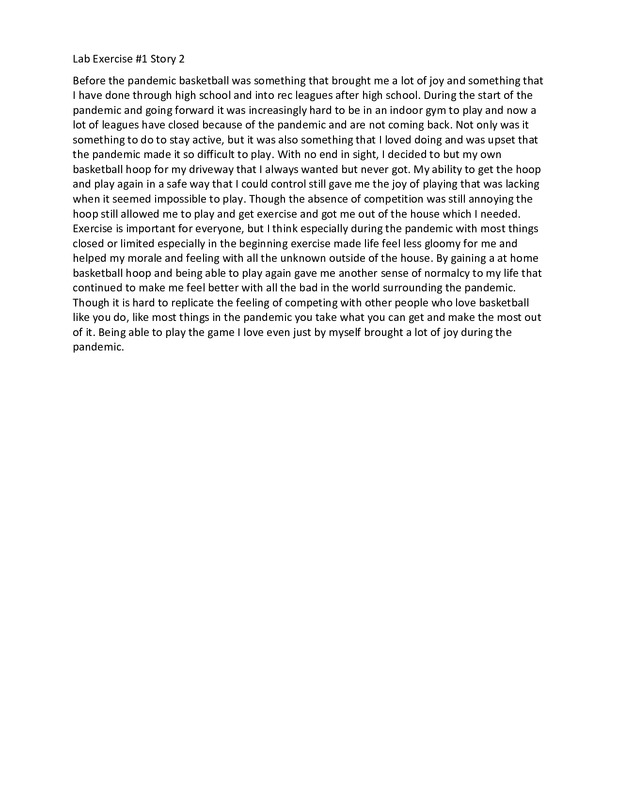
2022-02-06
What I was able to do when my ability to play basketball was limited during the pandemic.
-
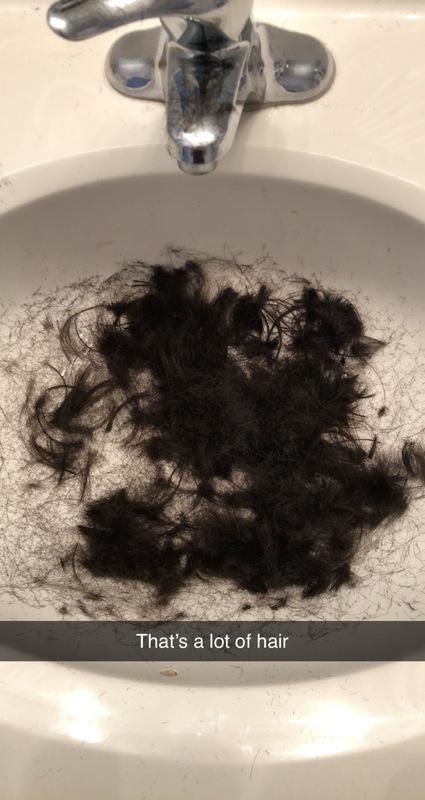
2020-04-24
I have a feeling that my journey through the Plague Years has been rather different than most other people. Even with the Pandemic raging, I would genuinely consider the past two years some of the best of my life. Though there were certain adjustments that had to be made surrounding the uncertainty of the disease early on, my life was largely unaffected. I was living at home and taking online classes at a community college so those continued after only a slight break. I worked part-time at a pet food store and because pet food was considered “essential” for people, I was allowed to continue working uninterrupted. My dad started working from home and my siblings high school went to a part-time schedule. During the day we started a plethora of new tv shows and almost every night we were able to have dinner as a family and play board games. The best part, after some debate, larger universities began moving to online classes and closing campuses. This meant that my friends who were away at school would be coming home. Once we knew the signs, symptoms, and the relatively small danger presented to younger people we were able to hang out and have socially distanced fun. As an introvert, friends, family, school, and work were all I really needed to be happy, and the loss of large-scale social functions was of no importance to me. In fact, I was able to utilize the lack of interaction during the Pandemic as a cover for experimentation. On April 24, 2020, after hearing my dad ask me to get a haircut for the third time, I decided to take matters into my own hands and gave myself a buzzcut. There were four thoughts ringing in my mind as the razor vibrated in my hand. 1. I need a haircut 2. No place was open that was close 3. I have had the same hairstyle since high school. 4. And most importantly, not many people would have to see it. I was pleasantly surprised at how easy it was and how it looked. Since that time, I have been much more adventurous with my hair styling and even with what I wear. The Pandemic helped me realize that life is too short to not try something new just for the sake of it. And though I did get clowned by my friends on occasion, that didn’t stop me from doing it again 11 months later…
The pictures included are the sink full of my hair and hanging out with friends rocking the buzzcut. Overall, I know how lucky I was to remain relatively unscathed throughout the Pandemic. My paychecks never stopped, my classes resumed shortly, and my relationships with friends and family blossomed. The only real loss experienced was my hair, and for that, I am more than grateful.
-
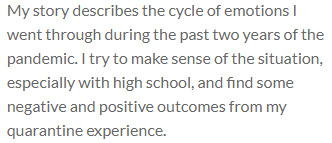
2022-02-07T10:00:00
My story describes the cycle of emotions I went through during the past two years of the pandemic. I try to make sense of the situation, especially with high school, and find some negative and positive outcomes from my quarantine experience.
-
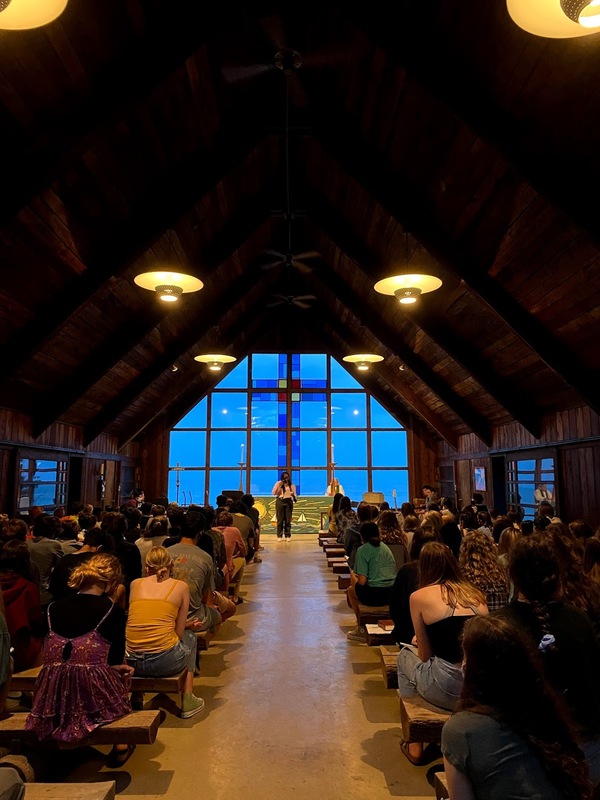
2021
This assignment has been hard to complete because I don't feel like I have many stories to tell. While I did spend the Summer working a sleep-away camp, I have spent most of the last two years inside avoiding activities that could lead to exposure. After re-writing stories way too many times, I decided to write about the present. Two years into the pandemic, I am facing the same uncertainty. In 2020, I knew nothing about what was going to happen. Now, it almost seems worse. We continue to return to how things were before covid-19, but I am not sure it is possible. In 2020, I figured we would spend six months to a year, and then it would be like ebola. Yet, here I am in 2022, worrying about new variants, when I can get my next booster shot, and whether I will be working this Summer. While I wish we could return to the way life was before, I think about the fact that this pandemic probably won't end anytime soon. We will constantly be getting booster shots and quarantine for the unforeseeable future. There are so many things that I want to do before I graduate college, like studying abroad, going to concerts, visiting my friends' colleges but, these aren't safe or practical decisions to be made. While I have to acknowledge that my anxiety about covid may be speaking more than the science and facts, it's hard to ignore that our actions have more consequences than we could have ever imagined. The Covid-19 pandemic has changed the way we live our lives forever. We could either start to make some changes or let it get worse. As a camp counselor, my campers often asked me why we had to wear masks if we had to test negative to come. I often said because we have to or because the state mandates it, but in reality, we wore masks for the safety of all campers and staff. We wore masks as a precaution rather than create a potentially dangerous environment. We did it because we cared. Even though I feel like I have a lack of stories and I am still uncertain about everything Covid, I still take the necessary precautions because I care.
-
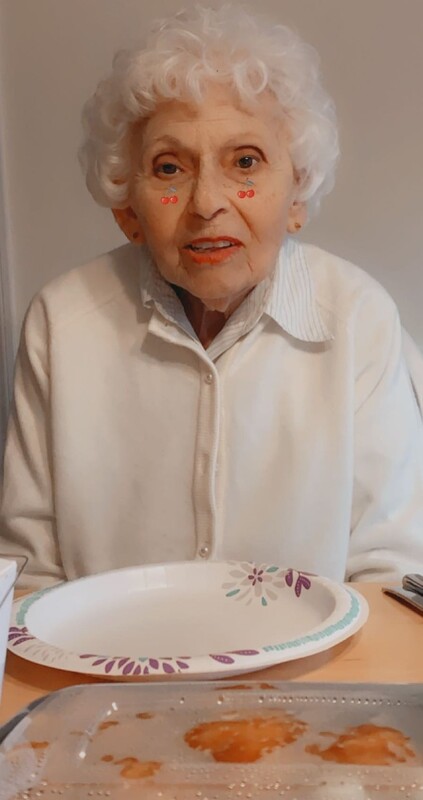
2021-02-09
My grandma, a 95-year-old woman, had a decline in her health. She had to go to the hospital multiple times, and we were all told that her muscles were deteriorating. The first time she was in the hospital for a couple of weeks this past year she wasn’t able to walk so she was recommended to go to a nursing home to receive rehab. She was in the nursing home where my mom worked, she was the only one actually able to visit her. I went and visited through the window so that I could at least see her and talk to her as I didn’t know how many more times, we would be able to talk. I would call her every other day just to talk and see how she was feeling. She then went to the hospital again because she was having issues breathing on her own. We found out that she had fluid in her lungs which caused her breathing problems. We were then told that she wouldn’t make it through the night, so we went and visited her to make sure we said our goodbyes without actually saying the word goodbye. She said “I’m not ready to leave” to my mom which she proved to be true. She ended up feeling a lot better after the oxygen started working. She still needed a lot of care to help her survive. We then found out that she had covid and that she wouldn’t make it through because of the already preexisting circumstances. Her old age and her body falling apart really didn’t help her to fight off something so bad. She lost her ability to eat anything. She couldn’t swallow at all, so she lost a bunch of weight. We were then told again that she wouldn’t make it through the night, so we rushed there to see her because we believed this to be true this time. We went into the hospital with a priest and some family members with only three people allowed in the room we had to alternate. We also had masks on and then told we had to put on gloves, and an isolation gown. I left after an hour because it hurt too bad to see her suffering with two forms of oxygen on and barely being able to talk. My mom and uncle stayed till they told them visiting hours were over. The next morning my mom gets a call saying that she had passed, and she came into my brother and I’s rooms in tears to tell us. On February 9th, 2021, at 8:03, my grandma passed away.
-
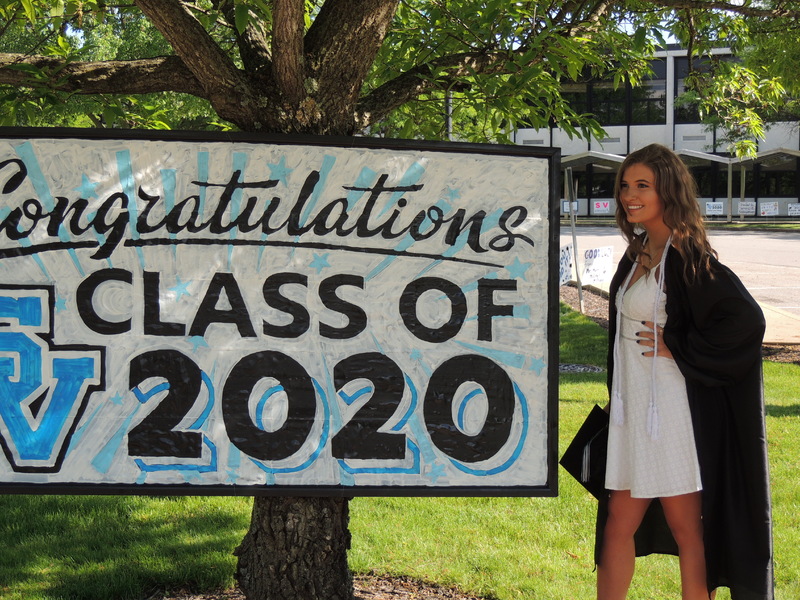
2020-05-30
I graduated high school in the year 2020, right when Covid-19 was growing at a rapid rate, and the world was on a lockdown. March 13, 2020 was the last day of high school for me, but I didn’t know it at the time, no one did. Senior year was supposed to be me and my friends’ last year together before we all went our separate ways for college, but the only way I could see them was social distancing in a parking lot or on face time. My mental health began to plummet, I was never one to be home, I was always out of the house. Just the isolation, not seeing your closest friends, not having anywhere to go outside the house, and doing the same boring stuff every day was so frustrating because there was nothing you could do to change that because the rest of the world was doing it too and it just was how it was. I never got to go to prom, something that was supposed to be the best night in all of high school. Events that we have been looking forward to all our lives were being taken away from us, including graduation. It felt weird to be celebrating me graduating, since we weren’t even really having school. I tried to be optimistic, I mean I worked so hard for 18 years to get to this point in my life. My high school decided to do a drive-thru graduation, where I stayed in the car and was handed my diploma, not with all the teachers or friends who helped me get there, but I was grateful to have my family. I never got to shake my principal’s hand, had people cheering for me, or able to stand with my friends and throw my cap in the air. My graduation party was the following week and held outdoors, and I was excited to see close family and friends. However, 2 days before my event that I was already kind of sad about how many important people weren’t going to be there, my extended family contracted covid. My extended family was as close as my immediate family to me, my aunt was my baby-sitter growing up, and they were unable to make it. I was crushed and crying for days leading up to it and even after, it just wasn’t the same without them. It’s sad writing this, something that I spent my whole life working forward to just ripped away. It was a true test of character, adaptability, and mentality. This was the lowest point in my life, all thanks to Covid-19.
-
2021-10
Since the pandemic started life has definitely changed in plenty of ways, not just for me but for everyone. From the way we learn in school and work jobs to the way we interact in public and meet people. One thing covid brought that I saw prevalent in a few different aspects of my life was a new reason for division amongst people. This new reason for division is almost a political thing, where there are people that are nervous and scared that covid is harmful and then the people who do not care and believe covid is blown out of proportion. I see this division in things like media, politics, family, and friends. It makes a lot of things confusing for me because I never know which side to listen to. The crazy thing to see for me is how a pandemic can come around and cause so much separation. At a point it started to seem like it was the only thing I heard people talking about and it would drive me crazy. If I put on the news, it was always someone saying everyone needs masks, then I flip the channel and the next station is saying mask are bad and should not be on all day. Then it came to my family, my dad would tell me I needed all the vaccines and booster but my mom on the other hand told me to do whatever I wanted and did not care. Seeing all of this back a fourth throughout this time would frustrate me because it made making my mind up so difficult. This eventually even got to my friends, and I saw friends that would argue about whether people should get the booster or not, and I thought it was so ridiculous. The reason I bring up this point of division is because I believe it is interesting how everyone has reacted to covid. I also feel like it has made people feel the need to push their opinions and ideas onto other people, it is something I have seen first-hand in my life. Similar to the way Hitler or Stalin pushed their ideas on everyone, but on a very different level. Maybe one day people will just let each other choose for themselves.
-
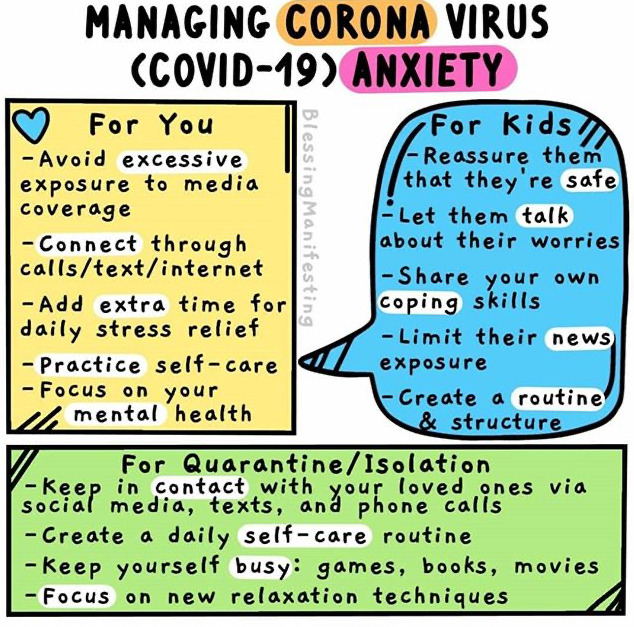
2020-03
As most young adults my age, I suffer from severe anxiety. Dealing with anxiety daily, can be very challenging at times, especially during a pandemic. I have been fighting a battle with anxiety most of my life. At this point, I am really used to the extra thoughts in my head. I have learned to help manage it, but not completely get rid of it. I believe that anxiety has made me who I am, in a way, because I do not remember a time where I was not struggling. In 2020, a pandemic instantly flooded the world. This completely impacted my entire life. I was not able to experience my last year in high school, I was not able to be around the one person that helped me with my anxiety, etc. I was forced to wear a mask that I could barely breathe in. I lost touch with most of my friends that I developed over my lifetime. This instant wave of depression suddenly hit me. I was so nervous on what would happen next, and how long will this last. People were dying from this pandemic. I constantly worried about if the sickness would hurt one of my family members or someone important to me. Over the time of being in quarantine, I thought to myself ways on how I could relax and not worry so much about the pandemic. I told myself every day, “Everything happens for a reason”. This is what I truly believe and for some reason it really does calm me down. I am Catholic. I am a very deep believer in God. To me, trusting in the Lord is the best anxiety reliever around. Covid-19 is still around today. Without Covid-19, I would not be where I am today. Although this pandemic has an abundance of negative impacts on my life, it also had some positive ones, too. I would not have attended Duquesne University, met so many amazing people, and made a plethora of memories that I would not trade in for. I believe talking about my anxiety, especially during the pandemic, is very critical because I am not the only one who is suffering, too. Everyone is nervous about what is going to happen next. To me, this is HUGE on helping me with my anxiety. I can finally think to myself that I am not alone.
I believe that people who suffer from anxiety, especially from the pandemic started in 2020, can have a place to go if they are nervous. When I was struggling, I felt alone, and I was the only person who felt this way. My story will allow people to realize that they are not alone. Everyone is dealing with this stress and anxiety that I suffered from. My story tells people that I have worries and doubts, too. The pandemic not only had negative impacts, but they also had positive impacts. Focusing on the positives, will distract you from the anxiety and worrying. My story should help prove that. My story should allow people to see and find new ways to cope with the stress. I hope my story leaves a positive impact on people who did or are struggling. Everyone is in this together, and nobody will be alone in this major impact on the world.
-
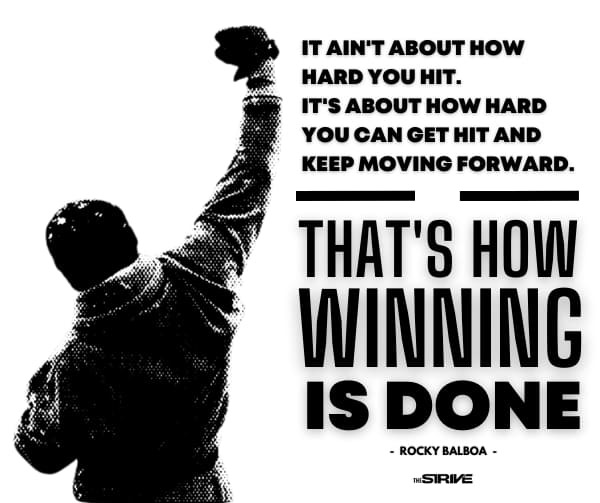
2020-03
The Covid-19 pandemic has brought an array of challenges for not only me, but people across the globe. People have lost loved ones, lost touch with some of their closest friends, got covid themselves, and so much more. Although Covid-19 has taken a long-lasting toll on my life, it has also brought me great change in an extremely positive way. When the pandemic first started my family and I were forced into a “lockdown”, only leaving our house for the essentials like food. I was unable to see my friends as online schooling became more and more prominent. This took such a toll on me both mentally and physically. I was longing for a social connection that I could no longer get and was unable to do one of the things I love to do most, workout. Although at the time I thought it was the worst thing possible, the lockdown caused my family and I to get extremely close. We would have family dinners, play games, and watch movies. The pandemic helped me to realize how much I rely on my family, and that through thick and thin they will always be there for me. As the pandemic progressed, I got accepted into Duquesne University, and started college soon after. This was a huge adjustment for me as I am from Buffalo, three and a half hours away. I had to meet new people and get adjusted to home away from home amid a global pandemic. I had to overcome fear of the unknown and fear of the pandemic to grow as an individual, and I did just that. Through the last three semesters I have met so many amazing people and found the things that make me happy while at Duquesne. I learned to not let fear override you, and that to grow physically and mentally you must overcome fear. Across the entire pandemic I have also learned that sometimes you need to focus on yourself and put yourself first. Throughout the pandemic I got into the habit of going to the gym consistently and began to eat more cleanly. I found joy in the little things, like going to work and building relationships with my fellow employees. In the end, the pandemic taught me to always look on the brightside no matter what and to make the most of everything that is thrown at you, good or bad. Looking back at it, the Covid-19 pandemic helped me grow and become the person I am today.
-
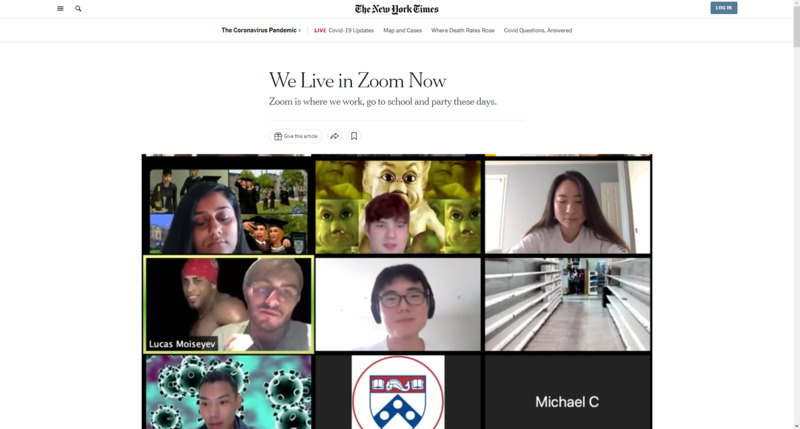
2021-10-13
While my life has changed significantly due to the covid-19 pandemic, I would say that the biggest adjustment for me was adapting to the different methods of instruction at my university. As a college student, I was used to and grew comfortable with in person instruction. This was the method of learning that I partook my entire life; the sudden change to strictly online had significant effects on my academic performance and overall retention of material. For me, it was remarkedly more difficult to grasp concepts that I would have comprehended under normal study conditions. Taking science heavy courses such as organic chemistry, instrumental analysis, physics, and molecular biology were all much more difficult than they would have been normally. It is also prudent to note the inconsistencies of professors during this time period, as they had to adjust just as much (or even more) than students. Old-school professors that did not have experience with the newest technology were forced to orient their lecture material in a format completely foreign. Needless to say, professors who were very effective instructors in person often struggled in the zoom format. Specifically, issues related to zoom that affected the quality of teaching included connection issues and students having incentives to not pay attention. For example, I took biostatistics 1 completely online, where the professor was older and not technologically adept. Every class the professor would write notes on a paper and and show it to the class. This strategy for teaching proved to be ineffective because the quality of video was not definitive, the lighting was poor, and the handwriting was small. All of these combined factors led to an entire class who had no idea what was being taught to them. While this is unfortunate, I adapted by reading more of the textbook than I would under normal circumstances, and met with the professor during office hours to work out material that I did not understand.
-
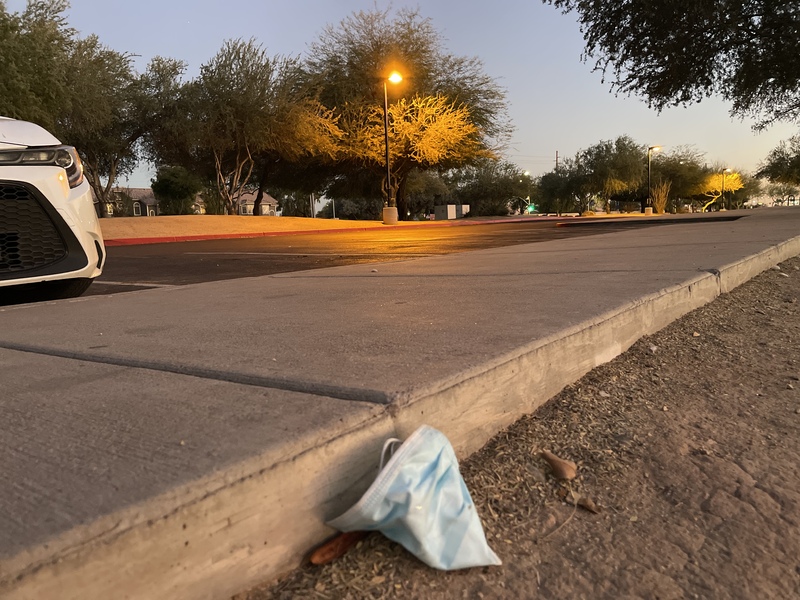
2022-02-06
Mask trash by the parking lot at Nozomi Park.
-
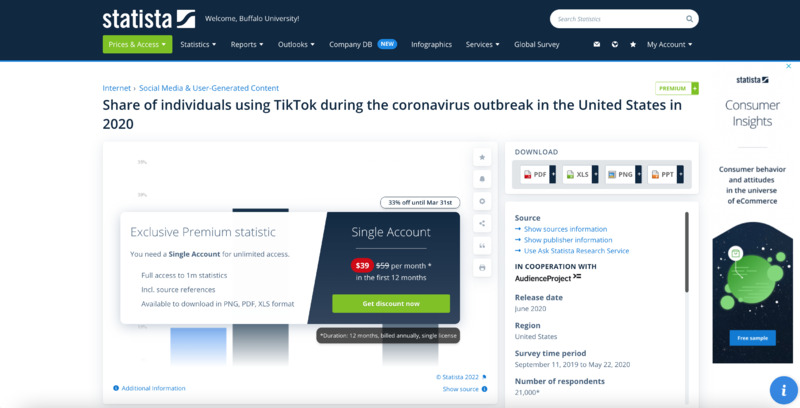
2022-02-06
This website shows how much Tik Toks Ratings went up during the pandemic while people were confined to their homes. Tik Tok started many trends over the last couple years and became a national platform around the world to post things like art, music, memes, craft, beauty, inspiration, cooking, education, and entertainment. This was known around the world as a creative outlet for millions of people during a sad period in time.
-
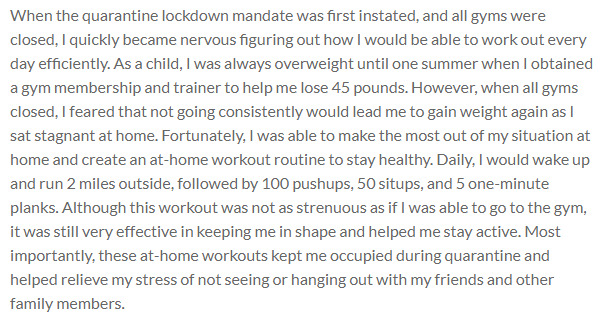
2020-03-20
When the quarantine lockdown mandate was first instated, and all gyms were closed, I quickly became nervous figuring out how I would be able to work out every day efficiently. As a child, I was always overweight until one summer when I obtained a gym membership and trainer to help me lose 45 pounds. However, when all gyms closed, I feared that not going consistently would lead me to gain weight again as I sat stagnant at home. Fortunately, I was able to make the most out of my situation at home and create an at-home workout routine to stay healthy. Daily, I would wake up and run 2 miles outside, followed by 100 pushups, 50 situps, and 5 one-minute planks. Although this workout was not as strenuous as if I was able to go to the gym, it was still very effective in keeping me in shape and helped me stay active. Most importantly, these at-home workouts kept me occupied during quarantine and helped relieve my stress of not seeing or hanging out with my friends and other family members.
-
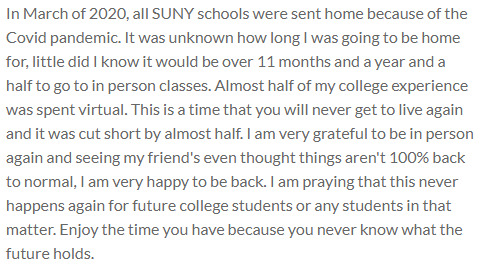
2022-02-06
In March of 2020, all SUNY schools were sent home because of the Covid pandemic. It was unknown how long I was going to be home for, little did I know it would be over 11 months and a year and a half to go to in person classes. Almost half of my college experience was spent virtual. This is a time that you will never get to live again and it was cut short by almost half. I am very grateful to be in person again and seeing my friend's even thought things aren't 100% back to normal, I am very happy to be back. I am praying that this never happens again for future college students or any students in that matter. Enjoy the time you have because you never know what the future holds.
-
2022-02-06
It’s been nearly two years since the start of the pandemic, and if you ask some people, the state of this disaster hasn’t improved a whole lot. I turned 20 a few days ago, which marks my second birthday that has passed since the official start of Covid, which if I’m remembering correctly was March 13th, 2020. I’ll never forget the announcement made over the Pine Richland High School loudspeakers that day. Sitting in the back of the statistics classroom, the statement told us that we would have no school for the next two weeks, which at the time beat any time off we’d ever had prior. Fast forward two years later and we still wear masks indoors. We still have to wash or sanitize our hands after just about any surface we touch to hope we don’t get the virus. Even more importantly, I haven’t been able to see some of my family for years now. Driving all the way out to New York would be risky since they aren’t in the best health, and it’s not worth taking any chances with how bad this virus can be for some people. The worst part of it all has to be that we don’t know when this is going to end. It’s been long enough that the pandemic has become political, with rivalries between those who choose and refuse to get the vaccine, but will it ever stop? Will there ever be a point in time that we can all feel safe enough to be able to do anything without living in fear of this virus? I never expected to be sitting here years after this all started writing how just about anything is still affected by Covid, but I guess I’ve gotten used to it. After all of this, though, the whole “you never know what you got until it’s gone” saying really does remain true.
-
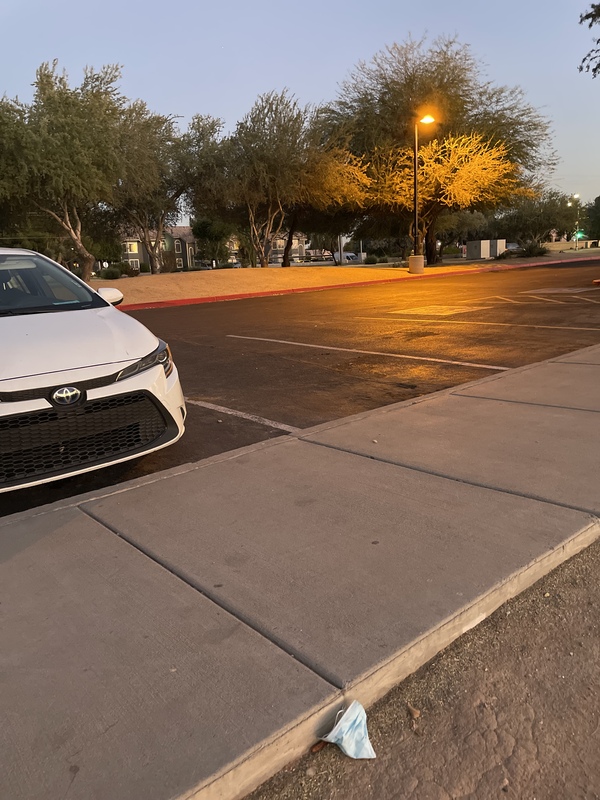
2022-02-06
Mask trash by the parking lot at Nozomi Park.
-
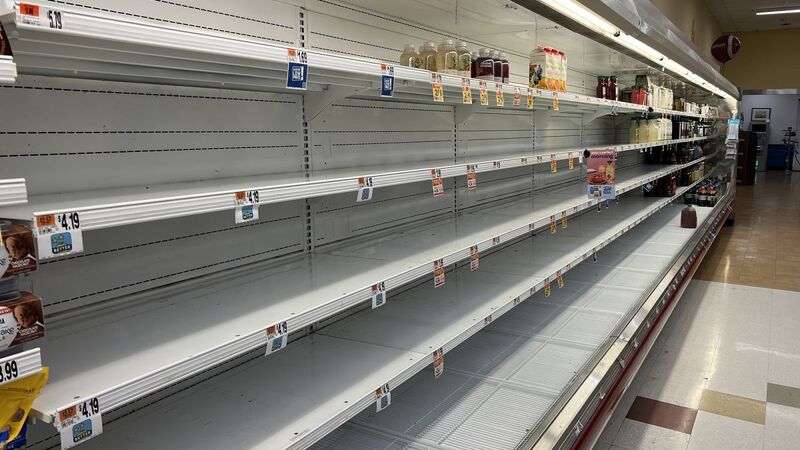
2020-03
My plaque story begins in March 2020, right in the middle of my senior year of my senior year of high school. that day we were let out of school for, what we were told, 2 weeks. One of my friends was away at a baseball camp that night and he had left his car in our school parking lot so me and my friends decided to go to the grocery store, buy a bunch of Saran Wrap, and Saran Wrap his car. At this point the amount that the pandemic would affect our lives hadn't sank in yet but when we got to the grocery store to buy the wrap we saw a very surreal sight. Hundreds of people were there wearing masks and gloves, and even goggles. People were buying canned food and toilet paper in mass quantities and there were numerous empty shelves. It looked like something out of a movie and that's when it began to sink in how crazy the situation was. that same week I remember going hiking with a couple of my friends and talking about the pandemic. I remember us wondering if anyone that we knew would end up getting the virus or if it would fizzle out before it hit Pennsylvania and if or when we would go back to school to finish our senior year. It turned out that we would never go back and "two weeks to slow the spread" turned into months and then years. It is now February 2022 and our lives are still being turned upside down by this pandemic. All we can do now is hope that things eventually return to normal and that we as humans can learn from the mistakes made during this pandemic.
-
2020-04
2020 started out great. I finally started to like my experience as a freshman at Duquesne. I really took a liking to my classes and the sorority that I joined, and I was always busy which was a nice change of pace from the fall semester. With this, I met a lot of amazing people who soon would become my closest friends. I was having a great start to the year. However, that all came to a pause in the middle of March. What I thought was going to be a 2-week vacation turned out to be a complete change in the way we live our lives. Zoom University was a nice break but it soon turned into a nightmare. I myself am a home-body, but getting up every single day knowing that I was about to have the same exact day as the next and the next was really hard. I had a really hard time not seeing family, friends, maintaining relationships, and just trying to stay sane during this quarantine. While this seemed like a never-ending cycle that would soon drive me and everyone in my house insane, it turned out to be a blessing in disguise. While I really loved my life at school, I realized that I didn’t have much time to focus on myself. It was just one distraction after the next. I finally got to really do things for myself. I made it a habit to workout inside the house, go on daily walks with my family, journal my thoughts, and really work on finding my inner peace. During this time, I realized that some things I had in my life pre-covid that I thought were serving me and bringing value, were not. Covid really stripped down every distraction and made it clear what was making me happy and what wasn’t, and for that I am grateful. Although it came with many struggles, covid taught a lesson to myself and I think to a lot of people of how to adapt well to a situation and focus on what is important, your well-being and the well-being of those closest to you and get back to your roots!
-
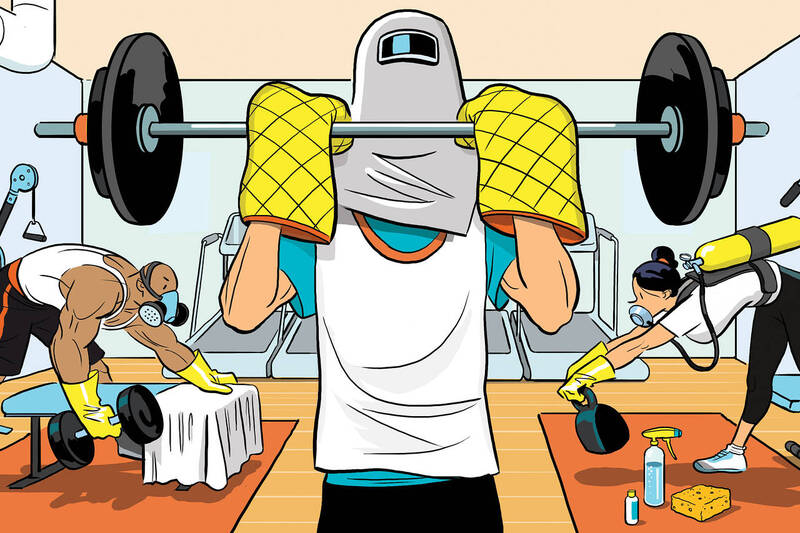
2020-03-16
The COVID pandemic of 2020 affected many lives including my own. For me, it greatly affected my ability to focus on my physical health. When we were all sent home from school to finish our semester online, the gyms closed. This drove a wedge between me and where I wanted to be physically. While I could still do calisthenics at my house, I was unable to do the heavy weight training that I had grown so accustomed to. This caused me to lose some of the muscle mass I had spent so much time trying to gain. Not only that, I also lost the one place I could go to be alone with my thoughts. While I’m at the gym, I can focus on problems inside my mind while also making myself stronger. I don’t have to deal with any unnecessary external interactions with others while I’m at the gym. While I was at home, I would sometimes find myself being irritated by my family with nowhere to go. During these times, I would end up going outside or locking myself away in my room. Since I had nowhere to blow off the steam, I could only sit there and let the irritation manifest into anger. While calisthenics were good for my physical shape, they did not help me the same way heavy weights did. To fix that issue, I took up boxing with two gloves and a small yoga mat. I put the mat up against the wall and began teaching myself how to box. This was helping. While I had to deal with the occasional interruption by my family, I finally found an activity that helped me effectively blow off steam. Still, I always knew that none of this was going to last. I knew I needed to get back into the gym in order to feel like myself again. Much like many others, I waited until the day when mine reopened again. When my gym reopened, I considered the pandemic to finally be over in my eyes.
-
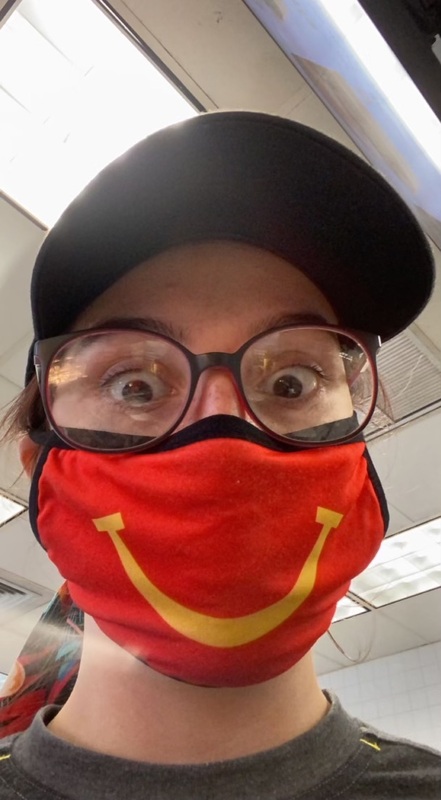
2020-03-24
March 2020
When the pandemic began, I was two weeks into my first job at McDonalds. At this point in the pandemic, masks cost $700 for the case we got at work. One day, when I walked into McDonalds, the manager called me back to the office. I thought I was getting fired since we were overstaffed, and I was trained to work at the kiosk in the now-closed lobby. To my surprise, she didn’t fire me. She explained that we have a new part of our uniform: a McMask. If I said I laughed, that would be an understatement. People were wearing them upside down, so they made a sad face. Even the customers laughed at us. I was always the first person to show my McSpirit, but the McMask would not be seen on me outside of a McWork setting.
I noticed other changes at work aside from our spectacular new dress code. Since we were drive-thru only, customers started acting crazier than usual. Due to supply chain shortages, our menu was somewhat limited. While some customers took it for what it was (we’re in a pandemic, yanno?), some were not so understanding. I had money, drinks, and some very hurtful words thrown at me.
Some may wonder: Did McDonalds take the proper precautions to stop the spread of COVID-19 within the restaurant? The short answer: McNo. During the beginning of my McWorking career, I stayed on the customer service side of things, so I wasn’t in the kitchen. However, the people in the kitchen rarely wore masks, since the lobby wasn’t open, and the customers couldn’t see them. Since we were during peak Shamrock Shake season when the pandemic began, there was rarely time between orders to change gloves or wash hands.
In conclusion, McDonalds had quite a few McChanges during the pandemic. Although, none of them sacrificed the Mac’s dirty nature, it was quite the experience to hop into this new way of life with all my filthy McPals by my side.
-
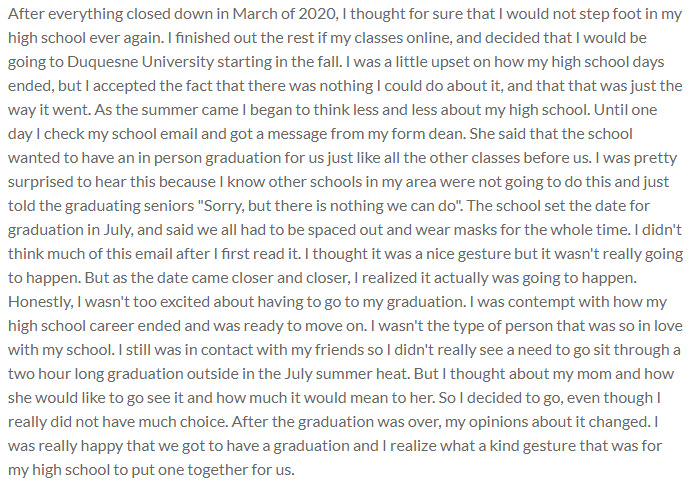
2022-02-06
After everything closed down in March of 2020, I thought for sure that I would not step foot in my high school ever again. I finished out the rest if my classes online, and decided that I would be going to Duquesne University starting in the fall. I was a little upset on how my high school days ended, but I accepted the fact that there was nothing I could do about it, and that that was just the way it went. As the summer came I began to think less and less about my high school. Until one day I check my school email and got a message from my form dean. She said that the school wanted to have an in person graduation for us just like all the other classes before us. I was pretty surprised to hear this because I know other schools in my area were not going to do this and just told the graduating seniors "Sorry, but there is nothing we can do". The school set the date for graduation in July, and said we all had to be spaced out and wear masks for the whole time. I didn't think much of this email after I first read it. I thought it was a nice gesture but it wasn't really going to happen. But as the date came closer and closer, I realized it actually was going to happen. Honestly, I wasn't too excited about having to go to my graduation. I was contempt with how my high school career ended and was ready to move on. I wasn't the type of person that was so in love with my school. I still was in contact with my friends so I didn't really see a need to go sit through a two hour long graduation outside in the July summer heat. But I thought about my mom and how she would like to go see it and how much it would mean to her. So I decided to go, even though I really did not have much choice. After the graduation was over, my opinions about it changed. I was really happy that we got to have a graduation and I realize what a kind gesture that was for my high school to put one together for us.
-
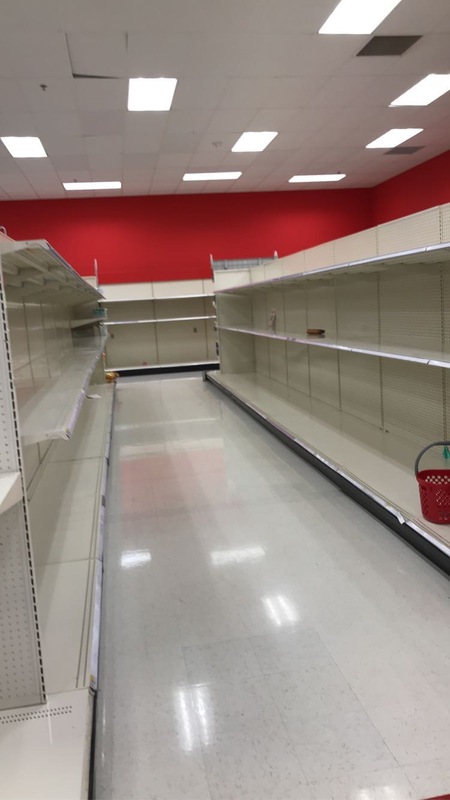
2020-03-17
On March 17, 2020, I went shopping for the first time since schools and facilities closed nationwide just four days earlier. Much to my dismay, upon entering my local Target, I noticed that shelves in every part of the store were empty, however, I specifically remember shortages of canned goods, paper towels, and tissue paper. I continued to shop and collect what I could, all the while wondering what else would be in short supply in the coming days. During this time, families across the nation (including mine) began to ration food and focus on purchasing essential items when they became available. In retrospect, the mass shortage not only demonstrated how the pandemic impacted all parts of life, but it also revealed how accustomed Americans are to having various items available in abundance, which I believe is sometimes taken for granted.
-
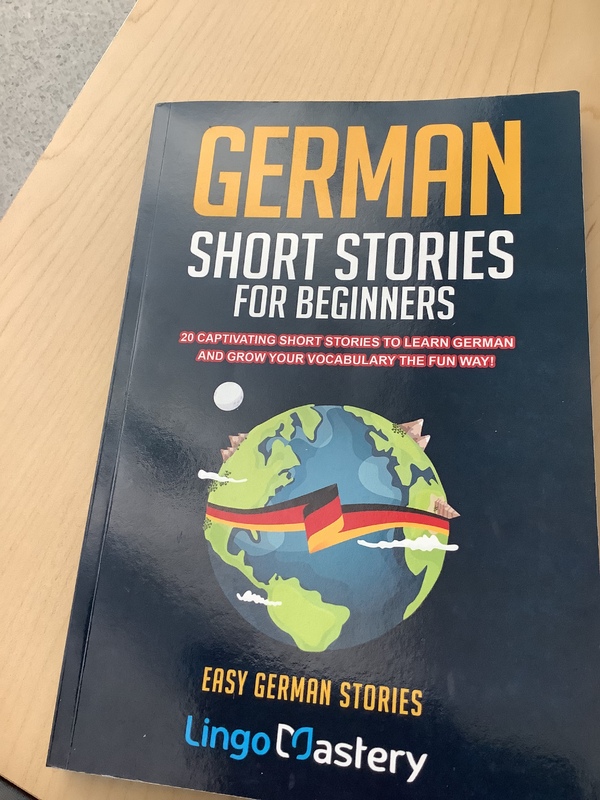
2020-03-28
Once the world shut down and everyone had to quarantine, I found that I had a lot of new found free time to deal with. Over the first few days I thought it was awesome, because I was able to relax at home and basically do nothing. After those beginning days, things started to get boring. I didn’t know what to do with myself. It took me a few days, but I began to look for more things I could do with my life. As a music major, I practice my instrument about 3-4 hours every day. I took advantage of my free time by putting in a lot of work on the horn which greatly helped my development. I have also been very interested in learning new languages. I decided to start learning German. So far I’ve been studying German everyday on my own since then. It has been very fun to read stories and news articles in German. I have also found a great podcast and YouTube channel that does an awesome job teaching German. I had also begun to exercise more during the pandemic. My friends and I would go on runs outside together. It was a great way to meet up with friends and be healthy. The pandemic was a very difficult time when it first broke out. Most people did not know what to do with themselves. There was a lot of sitting at home, watching television, or playing video games. I didn’t want to remember the time of the pandemic as a time where I didn’t improve as a person. I had decided to make these changes or improvements to better myself for when the pandemic was over. It has been a great lesson for me as the pandemic is still going on today. I have learned how to deal with difficult situations and also how to make the most out of them
-
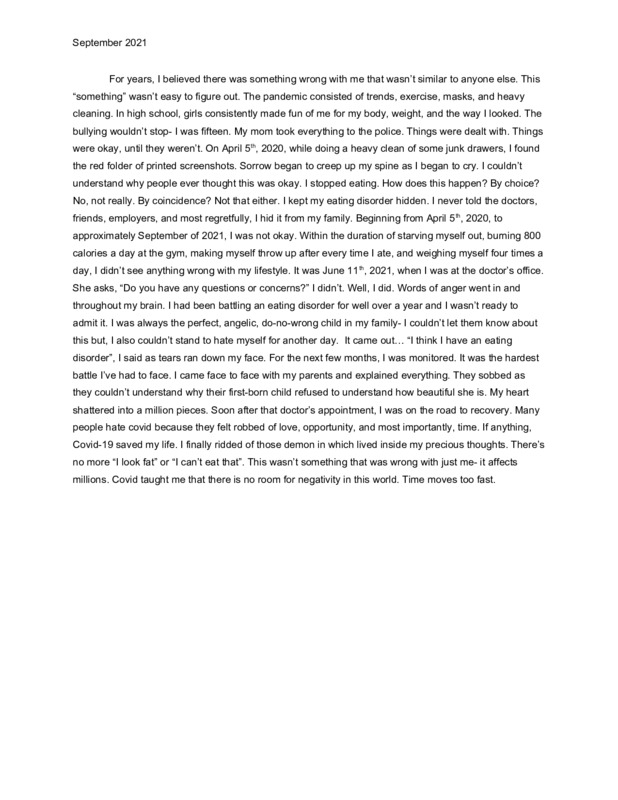
2021-09-13
For years, I believed there was something wrong with me that wasn’t similar to anyone else. This “something” wasn’t easy to figure out. The pandemic consisted of trends, exercise, masks, and heavy cleaning. In high school, girls consistently made fun of me for my body, weight, and the way I looked. The bullying wouldn’t stop- I was fifteen. My mom took everything to the police. Things were dealt with. Things were okay, until they weren’t. On April 5th, 2020, while doing a heavy clean of some junk drawers, I found the red folder of printed screenshots. Sorrow began to creep up my spine as I began to cry. I couldn’t understand why people ever thought this was okay. I stopped eating. How does this happen? By choice? No, not really. By coincidence? Not that either. I kept my eating disorder hidden. I never told the doctors, friends, employers, and most regretfully, I hid it from my family. Beginning from April 5th, 2020, to approximately September of 2021, I was not okay. Within the duration of starving myself out, burning 800 calories a day at the gym, making myself throw up after every time I ate, and weighing myself four times a day, I didn’t see anything wrong with my lifestyle. It was June 11th, 2021, when I was at the doctor’s office. She asks, “Do you have any questions or concerns?” I didn’t. Well, I did. Words of anger went in and throughout my brain. I had been battling an eating disorder for well over a year and I wasn’t ready to admit it. I was always the perfect, angelic, do-no-wrong child in my family- I couldn’t let them know about this but, I also couldn’t stand to hate myself for another day. It came out… “I think I have an eating disorder”, I said as tears ran down my face. For the next few months, I was monitored. It was the hardest battle I’ve had to face. I came face to face with my parents and explained everything. They sobbed as they couldn’t understand why their first-born child refused to understand how beautiful she is. My heart shattered into a million pieces. Soon after that doctor’s appointment, I was on the road to recovery. Many people hate covid because they felt robbed of love, opportunity, and most importantly, time. If anything, Covid-19 saved my life. I finally ridded of those demon in which lived inside my precious thoughts. There’s no more “I look fat” or “I can’t eat that”. This wasn’t something that was wrong with just me- it affects millions. Covid taught me that there is no room for negativity in this world. Time moves too fast.
The presence of eating disorders during the pandemic can help historians understand the impact of cyberbullying, food scarcity due to supply chain issues, etc. I don’t believe that researchers realize how many adults and children were affected by mental illness due to persistent lockdowns, isolation periods, restricted visitation, and new introductions to a virtual society. My experience offers intel to how mental and physical illnesses were underestimated throughout the entirety of the pandemic. Whether it be an eating disorder or a cancer patient, it’s difficult to watch because it seems like covid-19 patients are prioritized everywhere even if they choose not to be vaccinated. It’s a hard thing to watch in terms of priority because cancer patients, heart disease patients, etc. have less room in hospitals because people choose to not be vaccinated. With that being said, being vaccinated has no 100% guarantee of not being hospitalized but it lowers the rates substantially.
-
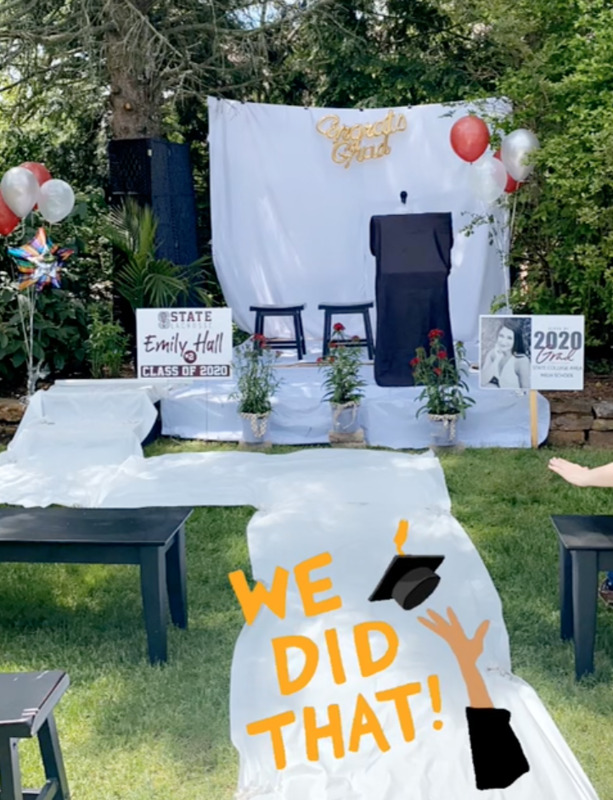
2020-06-01
As a senior in high school, I did not realize how important it was to experience milestones. I thought graduation was just an event that people dreaded and sat through for hours and hours until it was over. I thought prom was just another dance. I thought senior night for lacrosse was just a short walk across the field. I did not realize the true meaning and importance of these events until they were taken away from me.
My whole life, I watched my friends and brothers experience their “senior night” for their sports teams respectively. 2020 was finally my year to experience my senior night. I joined my mandatory Zoom call to discuss the options for the upcoming season, only for it to turn out in the cancellation of the entire season. I was heartbroken. At this moment, I realized that I would never play the sport I loved with my teammates ever again. I realized I would never be able to walk across the field with my family and be honored for all of the time I spent devoted to the sport of lacrosse. I would never be able to experience the feeling of walking off of the field for the last time in my career. The only experience I got was a drive thru of cars in a parking lot. Nothing could ever make up for the memories that I missed out on when my season was cancelled.
Another event that impacted me was my graduation. I had just spent thirteen years in my school district and it was finally my year to walk across the stage in my cap and gown while my family members cheered for me. Instead, because of the pandemic, I simply got to watch a slideshow from my computer with my name typed on a slide. That is all that was done by my school for my graduation. I was lucky enough that my family wanted to make this milestone special for me, so they gave me my own graduation. They set up a stage and a private graduation in my backyard with all of my family members which helped make up for the graduation that I missed out on. But, I never got to experience graduating from high school, and that is something that I know I will never get to experience due to COVID.
COVID has had an impact on my life in ways that I did not expect it to. COVID took away experiences and emotions from me that I didn't even know meant anything to me. This pandemic has taught me to take advantage of and appreciate any milestone in life, no matter how trivial it can seem. I felt and experienced the true meaning of the phrase, “You never know what you’ve got ’til it’s gone,” and if I could sum up my experience of the COVID-19 pandemic in one phrase, it would be that.
-
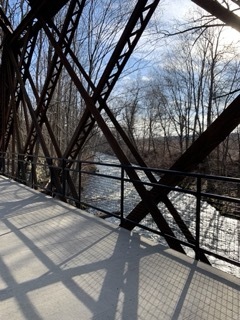
2020-03-01
March 2020
A week before the world shut down, I was enjoying spring break in the Bahamas still joking about covid 19. By the next Friday, I was preparing for the worst year of my life, and I did not know it yet. In two weeks, I lost the rest of senior year, prom, graduation, my stepmom was diagnosed with a rare autoimmune disorder which made it impossible to visit my dad, faced the fear of my mom working with covid every day despite having an autoimmune disorder herself.
I could have never predicted that my entire life would fall apart so quickly. I was mad that I ever took it for granted. I dreamed my entire life what my graduation night would look like, and I never pictured graduating in our local drive-in movie theater. I carried the guilt every day of not wanting to go out or choosing to do something else instead of seeing my dad. I wished I could go back and take any opportunity given to me.
At this point, I still had hope that the nightmare would end by Easter of that year, but it seemed like it would go on forever. I was scared. I was scared that my mom would catch covid and not be able to fight it. I was scared my stepmom would not get better. Everything was so unknown I found myself fearing the future.
I spent months doing absolutely nothing every single day. I was so upset I could not even bring myself to get out of bed to eat. All I wanted to do was sleep. I could not get more bad news if I was asleep. Every morning I woke up I felt like there was just more bad news and I honestly did not want to know what it was anymore. Waking up every day to more life-altering news with no end in sight was exhausting.
I now believe that this has forever changed my life in both ways. I do not take things for granted anymore because I quickly learned how quickly they can be taken away. I have learned to always look for the light at the end of the tunnel because even if it feels like it will never end it will. The most important thing I learned was that life is like a wave, there are highs and lows, but you need to learn how to rise again.
I have included a picture of the walking trail in my area. This trail was an escape from the scares of the world. I would often take long walks on this trail to calm the anxieties of the future. It was a chance to leave the house and almost forget what was happening in the world.
-
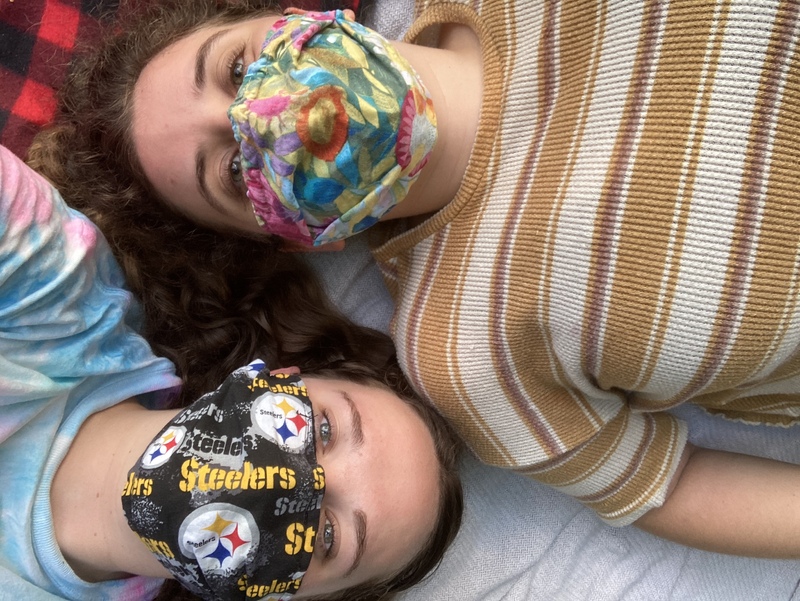
2020-05-07
The pandemic has been a rough time for me. I decided to take a gap year in the middle of my college experience in order to work. Online learning isn't the easiest, and it was the best decision I could've made. However, it was very isolating living in my parents basement for 18 months. Humans are supposed to be social creatures. My father is immunocompromised, which means that I have to be as careful as possible to keep him healthy. For the first few months of the pandemic, I didn't see anyone besides my mom and dad. I couldn't even see my grandmother, who I missed so much. Finally, things started to feel a little bit safer, so I was finally able to see my childhood friend. I sat in her backseat with a mask on, while she drove us to a hiking trail, where we were able to have a socially distanced picnic. Being able to spend that time with her was crucial. I needed this time with her to keep myself sane. We decided to take a picture of us wearing our masks, posing like the characters in The Fault In Our Stars movie poster. We talked for hours, grateful to be in each other’s presence. We made it a routine to try to do something outside together every couple of weeks. She lives in my neighborhood, so it was easy to meet at a corner and walk our dogs together. Being able to see someone that was outside of my immediate family was like a breath of fresh air, both metaphorically and literally. As time went on, she became part of my “COVID bubble” as my family called it. It was hard not seeing other friends, but I’m glad that at least I had her from the very beginning.
-
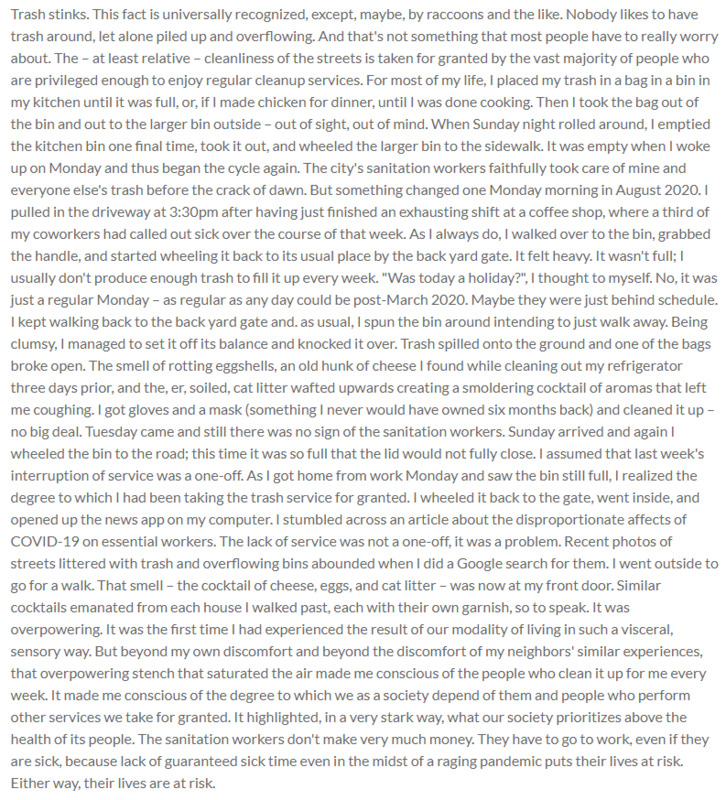
2020-08-10
Trash stinks. This fact is universally recognized, except, maybe, by raccoons and the like. Nobody likes to have trash around, let alone piled up and overflowing. And that's not something that most people have to really worry about. The – at least relative – cleanliness of the streets is taken for granted by the vast majority of people who are privileged enough to enjoy regular cleanup services. For most of my life, I placed my trash in a bag in a bin in my kitchen until it was full, or, if I made chicken for dinner, until I was done cooking. Then I took the bag out of the bin and out to the larger bin outside – out of sight, out of mind. When Sunday night rolled around, I emptied the kitchen bin one final time, took it out, and wheeled the larger bin to the sidewalk. It was empty when I woke up on Monday and thus began the cycle again. The city's sanitation workers faithfully took care of mine and everyone else's trash before the crack of dawn. But something changed one Monday morning in August 2020. I pulled in the driveway at 3:30pm after having just finished an exhausting shift at a coffee shop, where a third of my coworkers had called out sick over the course of that week. As I always do, I walked over to the bin, grabbed the handle, and started wheeling it back to its usual place by the back yard gate. It felt heavy. It wasn't full; I usually don't produce enough trash to fill it up every week. "Was today a holiday?", I thought to myself. No, it was just a regular Monday – as regular as any day could be post-March 2020. Maybe they were just behind schedule. I kept walking back to the back yard gate and. as usual, I spun the bin around intending to just walk away. Being clumsy, I managed to set it off its balance and knocked it over. Trash spilled onto the ground and one of the bags broke open. The smell of rotting eggshells, an old hunk of cheese I found while cleaning out my refrigerator three days prior, and the, er, soiled, cat litter wafted upwards creating a smoldering cocktail of aromas that left me coughing. I got gloves and a mask (something I never would have owned six months back) and cleaned it up – no big deal. Tuesday came and still there was no sign of the sanitation workers. Sunday arrived and again I wheeled the bin to the road; this time it was so full that the lid would not fully close. I assumed that last week's interruption of service was a one-off. As I got home from work Monday and saw the bin still full, I realized the degree to which I had been taking the trash service for granted. I wheeled it back to the gate, went inside, and opened up the news app on my computer. I stumbled across an article about the disproportionate affects of COVID-19 on essential workers. The lack of service was not a one-off, it was a problem. Recent photos of streets littered with trash and overflowing bins abounded when I did a Google search for them. I went outside to go for a walk. That smell – the cocktail of cheese, eggs, and cat litter – was now at my front door. Similar cocktails emanated from each house I walked past, each with their own garnish, so to speak. It was overpowering. It was the first time I had experienced the result of our modality of living in such a visceral, sensory way. But beyond my own discomfort and beyond the discomfort of my neighbors' similar experiences, that overpowering stench that saturated the air made me conscious of the people who clean it up for me every week. It made me conscious of the degree to which we as a society depend of them and people who perform other services we take for granted. It highlighted, in a very stark way, what our society prioritizes above the health of its people. The sanitation workers don't make very much money. They have to go to work, even if they are sick, because lack of guaranteed sick time even in the midst of a raging pandemic puts their lives at risk. Either way, their lives are at risk.
-
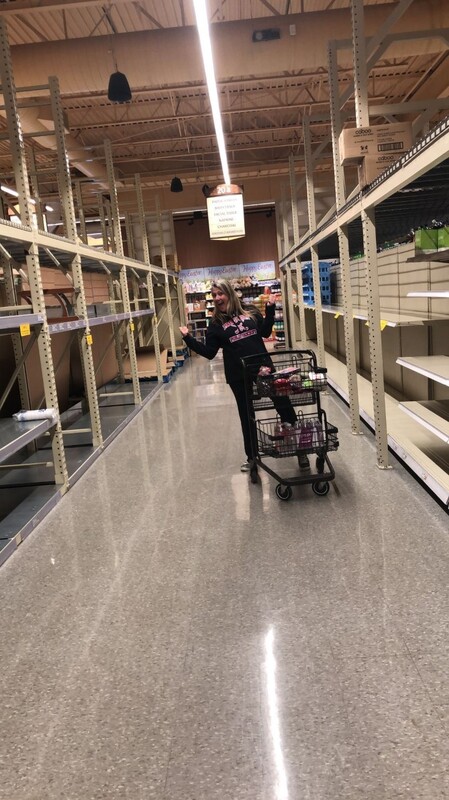
2022-02-05
March 13, 2020 was my last day as a student at Fairport High School in Rochester, NY, although I didn’t know it yet. I remember that day at school being filled with joking remarks, especially “Happy last day of school!” We discussed whether or not we thought school would close in economics class, and if it did, we came to the conclusion that it would only be a couple of weeks. The next day, I was in the car with my mom when I heard that school was to be closed indefinitely and that my dance studio, which I had been dancing at since I was three, also canceled classes. I started crying and got mad at myself that I took all those moments in the halls and with my teachers and friends for granted, as well as dance competitions and practice. But, I calmed myself down by reassuring myself that it would only be a couple weeks. My mom and I then went to Wegmans to see how empty the aisles were, and I was surprised to find that the cheese aisle was basically empty, and that there was no more toilet paper nor paper towels available. It’s weird looking back on how we weren’t wearing masks yet. The two weeks turned into months and on May 1st, school and dance stated that they were closed for the remainder of the year. I missed out on ball, my last dance competitions, my last dance recital, senior bash, and my graduation. We graduated by watching a poorly put-together slideshow of everyone’s pictures and pre-recorded speeches. Teachers came by and handed us our diplomas. We all drove by the dance studio the day that recital was supposed to be. However, despite these setbacks, I was able to learn more about myself and become closer to my family. My life that was previously extremely busy was put on pause, and sometimes I miss that. I started to paint, I watched a ton of movies that I had always wanted to see, I had time to spend with my dogs and cat, I got closer with my siblings, and I started to become an activist after the death of George Floyd and educate myself on racial inequalities and police brutality. The scariest part of quarantine was when my mother was redeployed to the COVID unit at RGH. She was only there for a couple weeks, but she saw how hectic and scary COVID truly was. She saw people die and not be able to say goodbye to their loved ones. Whenever she returned from work, I would have the front door propped open and the shower running so she could just jump right in the shower, and then I would spray everything with Lysol. Although I became majorly depressed in September of 2020 and I still dwell on the moments that I have missed, the pandemic was able to put my priorities into perspective. The pandemic was able to teach me not to take things for granted, to pay attention to the world around me, to try to make a difference in the world, and to make more time for the things and people that I love. May all those who have passed from COVID rest in peace and my heart goes out to all those impacted.
-
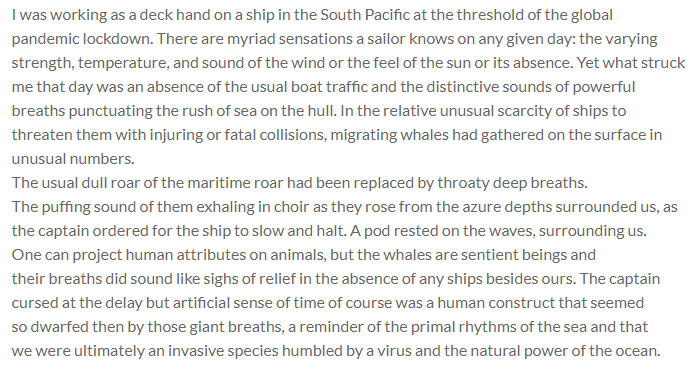
2020-03-06
I was working as a deck hand on a ship in the South Pacific at the threshold of the global
pandemic lockdown. There are myriad sensations a sailor knows on any given day: the varying
strength, temperature, and sound of the wind or the feel of the sun or its absence. Yet what struck
me that day was an absence of the usual boat traffic and the distinctive sounds of powerful
breaths punctuating the rush of sea on the hull. In the relative unusual scarcity of ships to
threaten them with injuring or fatal collisions, migrating whales had gathered on the surface in
unusual numbers.
The usual dull roar of the maritime roar had been replaced by throaty deep breaths.
The puffing sound of them exhaling in choir as they rose from the azure depths surrounded us, as
the captain ordered for the ship to slow and halt. A pod rested on the waves, surrounding us.
One can project human attributes on animals, but the whales are sentient beings and
their breaths did sound like sighs of relief in the absence of any ships besides ours. The captain
cursed at the delay but artificial sense of time of course was a human construct that seemed
so dwarfed then by those giant breaths, a reminder of the primal rhythms of the sea and that
we were ultimately an invasive species humbled by a virus and the natural power of the ocean.
-
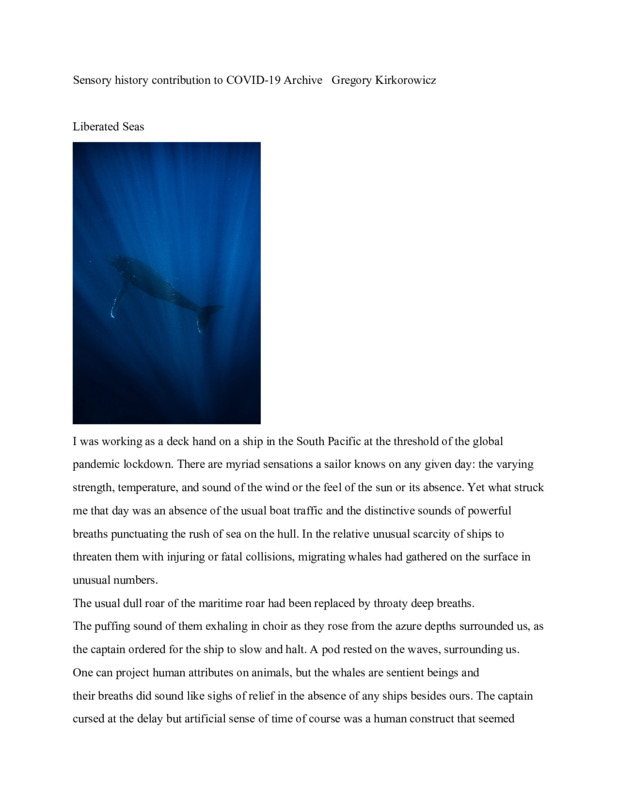
2020-03-07
I was working as a deck hand on a ship in the South Pacific at the threshold of the global
pandemic lockdown. There are myriad sensations a sailor knows on any given day: the varying
strength, temperature, and sound of the wind or the feel of the sun or its absence. Yet what struck
me that day was an absence of the usual boat traffic and the distinctive sounds of powerful
breaths punctuating the rush of sea on the hull. In the relative unusual scarcity of ships to
threaten them with injuring or fatal collisions, migrating whales had gathered on the surface in
unusual numbers.
The usual dull roar of the maritime roar had been replaced by throaty deep breaths.
The puffing sound of them exhaling in choir as they rose from the azure depths surrounded us, as
the captain ordered for the ship to slow and halt. A pod rested on the waves, surrounding us.
One can project human attributes on animals, but the whales are sentient beings and
their breaths did sound like sighs of relief in the absence of any ships besides ours. The captain
cursed at the delay but artificial sense of time of course was a human construct that seemed
so dwarfed then by those giant breaths, a reminder of the primal rhythms of the sea and that
we were ultimately an invasive species humbled by a virus and the natural power of the ocean.
-
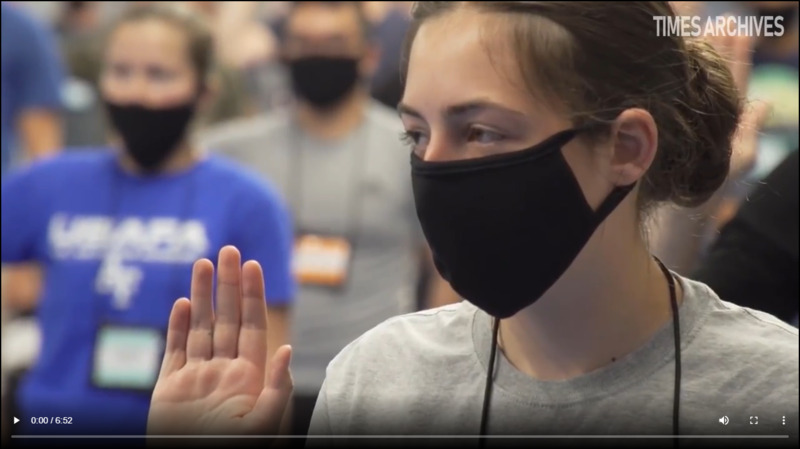
2020-06-25
Imagine yourself going into your senior year of college... but at a service academy while COVID-19 has sunken its teeth into every aspect of our lives. While most colleges and universities around the globe pushed back the start dates of their fall semesters in 2020 or moved entirely online, Service academies in the U.S. needed to meet congress' demand of supplying a steady stream of future commissioned lieutenants to the military. As a result, I found myself at 23 years old as a flight commander of 30 young, recent high school graduates who needed the same level of indoctrination I received into the Air Force four years prior.
Rather than videos of years past with cadet cadre in the faces of soon-to-be freshmen screaming at the top of their lungs, this video provides the innocuous version of in-processing with unedited or dubbed audio. You might even see a few of my basics who didn't know what to expect of basic training during the pandemic. While the cadre in the film stand professionally and talk with a sense of authority towards the basics, I can tell you behind the scenes we were re-writing COVID-19 protocol and adjusting their syllabi as each day passed. Your authority as a military instructor weakens as its filtered through a wet, uncomfortable cloth mask (I strongly encourage you to look up "I-Day" videos of USAFA prior to the pandemic to compare). Can you imagine how much you have to yell through one of those masks to get 30 individuals to hear you over the other 39 flights sprinkled across the campus drill pads?
My 6 weeks as a flight commander were filled with frustration, sympathy, reward, and most of all focus. First, focusing visually, I had to maintain social distancing anywhere from when basics were wrapped around the hallways to wait to shower all the way to when they practiced marching non-military standard "double-arm interval" for their basic training graduation day. Also, focusing through sound, I had to understand my basics through sweat or dirt covered masks as they recited knowledge, asked questions during academic blocks, or were struggling and needed follow-up mentoring.
The measurable distance between trainers and trainees as well as the pauses of silence, normally filled with a constant cacophony of yelling, are what many graduates of my alma mater would call weak. Despite a lack of intensity, masks added a layer of confusion and frustration during a period that is already filled with fear, stress, and exhaustion for basics. For that reason, I want to ask those who weren't there to understand sensually why the class of 2024 still went through the same basic training experience as years past. Maybe a second listen to the audio can even reveal those same frustrations and fears from the basics reflected in the tone of their cadre.
-
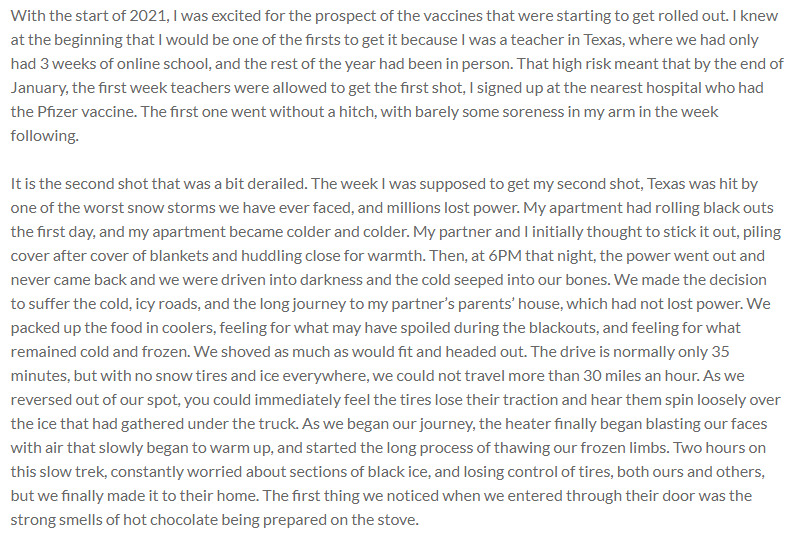
2021-02-16
With the start of 2021, I was excited for the prospect of the vaccines that were starting to get rolled out. I knew at the beginning that I would be one of the firsts to get it because I was a teacher in Texas, where we had only had 3 weeks of online school, and the rest of the year had been in person. That high risk meant that by the end of January, the first week teachers were allowed to get the first shot, I signed up at the nearest hospital who had the Pfizer vaccine. The first one went without a hitch, with barely some soreness in my arm in the week following.
It is the second shot that was a bit derailed. The week I was supposed to get my second shot, Texas was hit by one of the worst snow storms we have ever faced, and millions lost power. My apartment had rolling black outs the first day, and my apartment became colder and colder. My partner and I initially thought to stick it out, piling cover after cover of blankets and huddling close for warmth. Then, at 6PM that night, the power went out and never came back and we were driven into darkness and the cold seeped into our bones. We made the decision to suffer the cold, icy roads, and the long journey to my partner’s parents’ house, which had not lost power. We packed up the food in coolers, feeling for what may have spoiled during the blackouts, and feeling for what remained cold and frozen. We shoved as much as would fit and headed out. The drive is normally only 35 minutes, but with no snow tires and ice everywhere, we could not travel more than 30 miles an hour. As we reversed out of our spot, you could immediately feel the tires lose their traction and hear them spin loosely over the ice that had gathered under the truck. As we began our journey, the heater finally began blasting our faces with air that slowly began to warm up, and started the long process of thawing our frozen limbs. Two hours on this slow trek, constantly worried about sections of black ice, and losing control of tires, both ours and others, but we finally made it to their home. The first thing we noticed when we entered through their door was the strong smells of hot chocolate being prepared on the stove.
The next day, when my appointment was set for the second dose of the vaccine, I called and asked if they were still giving the vaccine or if I should reschedule, and was told that I would lose my spot if I rescheduled because they only had so many doses at this time and did not want to have any go to waste. My partner’s parents decided to drive all of us to the hospital. Several times on this trip, we heard the squeal and slam of cars losing control of their cars and careening into one another. We all held our breaths at each close encounter, and did not realize until we reached the hospital how we had all clenched our bodies in tension. It was not until we pulled into the parking garage that I heard all of us let out a collective sigh of relief. I went in for my second shot as the family stayed on the first floor, waiting out of the cold but away from the mass of bodies huddling to be let into the hospital.
Inside, I quickly walked down the hall, not wanting to make my partner and his family have to wait too long for me, and I was gently guided through the path by the volunteer staff. Because of the cold, I had worn three long sleeve layers, and found after much stretching that it was not possible for the nurse to get at my arm to receive the shot. Feeling the burn on my cheeks in embarrassment, as I had to publicly remove the top to layers, and pull my bottom shirt over my head. The cold of the room chilled my body, and I had to stop myself from shivering. With the second shot complete, and as I headed to the room to wait the required 20 minutes to make sure I did not have any immediate reaction to the shot, I was stopped dead in my tracks when I saw my partner and his family being ushered into the room. My partner was not yet eligible for the shot, and we both had had arguments with his parents about the shots, since they didn’t believe in needing them. I later found out that a nurse had been looking in the hospital lobby for anyone who hadn’t had their shots to come up because they had 5 extra shots that would be expiring if no one received them soon. Somehow, my partner in that split moment where they were being given this golden opportunity, shouted yes for all of them, and began shoving his parents down to the room before they could protest.
Once we had all piled back into the truck after all four of us received our shots, we went home as quickly as we safely could. Though I had had no reaction to the first shot, this second dose threw me for a loop. That night, the chills began. Even as the house had its heat blasting on full, and I was sitting as close to the fireplace as I could safely sit, my teeth could be heard chattering across the living room. My head began pounding, and I fell into a deep sleep an hour later. Thankfully, the cold was gone from my body when I awoke the next morning, and two days later, the snow had melted enough, and our power was restored to return home.
The pandemic has induced so much fear and anxiety in all of us over these last two years, have really made me so much more aware of those around me, but for me, when I think about the vaccines, and the reluctance of those who can receive them but don’t, I think about the treacherous journey I was forced to make to get mine. I think about the cold. I think about the squealing tires. I think about how terrible I felt after my second dose. And I also think about the relief at knowing that all of this awfulness led to my partner’s parents suddenly getting vaccinated. For that alone, I would experience the fear of the snowstorm once again.
-
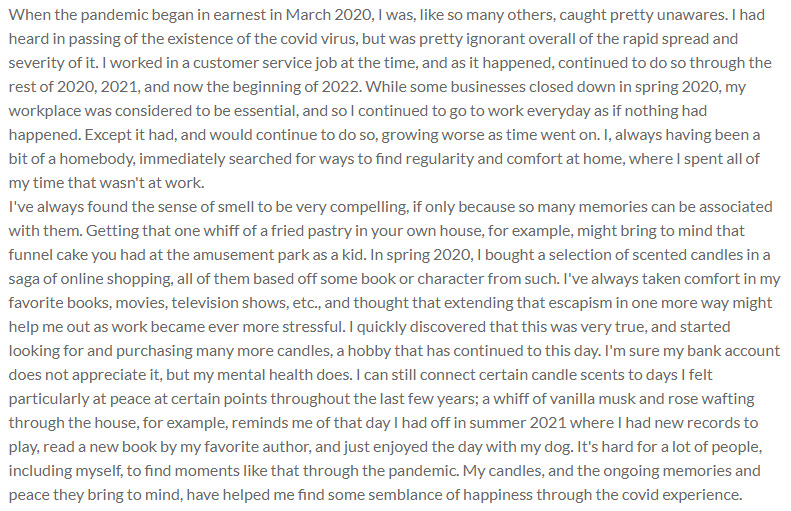
2020
When the pandemic began in earnest in March 2020, I was, like so many others, caught pretty unawares. I had heard in passing of the existence of the covid virus, but was pretty ignorant overall of the rapid spread and severity of it. I worked in a customer service job at the time, and as it happened, continued to do so through the rest of 2020, 2021, and now the beginning of 2022. While some businesses closed down in spring 2020, my workplace was considered to be essential, and so I continued to go to work everyday as if nothing had happened. Except it had, and would continue to do so, growing worse as time went on. I, always having been a bit of a homebody, immediately searched for ways to find regularity and comfort at home, where I spent all of my time that wasn't at work.
I've always found the sense of smell to be very compelling, if only because so many memories can be associated with them. Getting that one whiff of a fried pastry in your own house, for example, might bring to mind that funnel cake you had at the amusement park as a kid. In spring 2020, I bought a selection of scented candles in a saga of online shopping, all of them based off some book or character from such. I've always taken comfort in my favorite books, movies, television shows, etc., and thought that extending that escapism in one more way might help me out as work became ever more stressful. I quickly discovered that this was very true, and started looking for and purchasing many more candles, a hobby that has continued to this day. I'm sure my bank account does not appreciate it, but my mental health does. I can still connect certain candle scents to days I felt particularly at peace at certain points throughout the last few years; a whiff of vanilla musk and rose wafting through the house, for example, reminds me of that day I had off in summer 2021 where I had new records to play, read a new book by my favorite author, and just enjoyed the day with my dog. It's hard for a lot of people, including myself, to find moments like that through the pandemic. My candles, and the ongoing memories and peace they bring to mind, have helped me find some semblance of happiness through the covid experience.
-
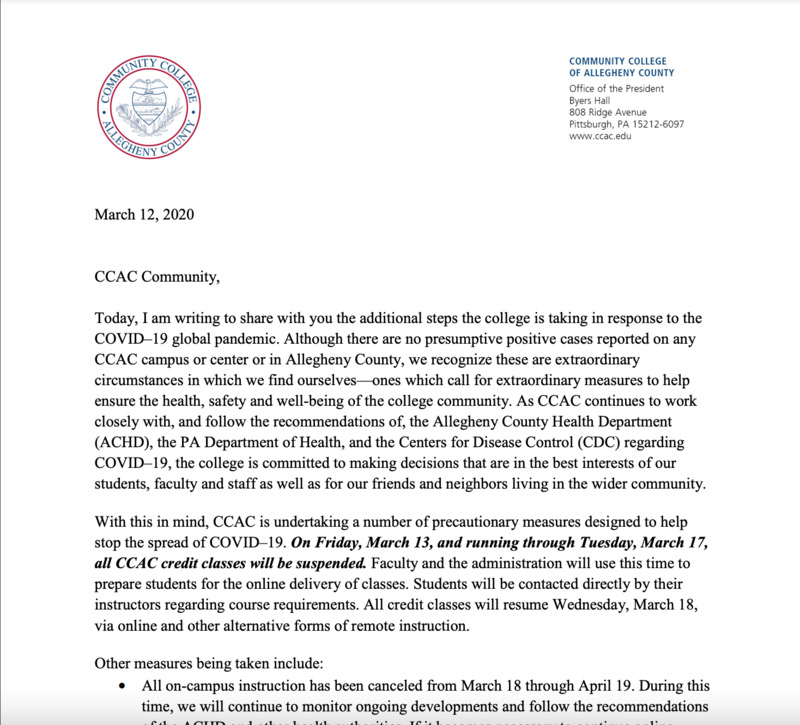
2020-03-12
On March 12th, 2020, the Community College of Allegheny County emailed out a letter in response to the COVID - 19 global pandemic. The college had suspended credited classes for five days until faculty and administration had figured out how to stop the spread of COVID – 19 by having a smooth transition from in-person learning to online learning. I was aware that COVID - 19 was starting to become a large problem in the U.S. and other countries, but I did not think that we were at the magnitude that we would need to go online learning. Nonetheless, I was fine with it. I would rather be safe than sorry because I wasn’t sure of the seriousness of the virus and the online learning period was only supposed to last from March 18th to April 19th. And then on April 1st, 2020, the whole state of Pennsylvania had gone on lockdown for COVID – 19, I had then selfishly started to become worried about what the future would hold for me. I was in the last year of my two-year degree program and extremely excited that I was finally eligible to graduate and walk across the stage and graduate with my family cheering for me like every other graduating class before me. I figured there would have to be some type of celebration for the graduating class because, before the year 2020, I and many other students had never even imagined what alternate graduation would look like or how it would even work. I think I and any other student who was a part of the graduating class of 2020 in hindsight are glad that we didn’t have the traditional graduation because we did celebrate our achievements and kept our family and friends safe while doing it.
-
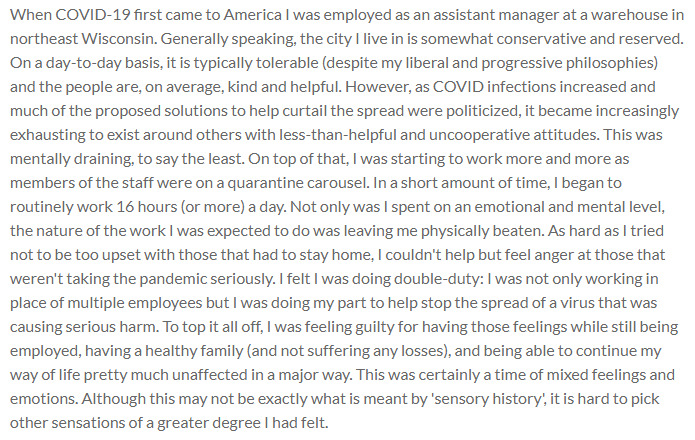
2020-09
When COVID-19 first came to America I was employed as an assistant manager at a warehouse in northeast Wisconsin. Generally speaking, the city I live in is somewhat conservative and reserved. On a day-to-day basis, it is typically tolerable (despite my liberal and progressive philosophies) and the people are, on average, kind and helpful. However, as COVID infections increased and much of the proposed solutions to help curtail the spread were politicized, it became increasingly exhausting to exist around others with less-than-helpful and uncooperative attitudes. This was mentally draining, to say the least. On top of that, I was starting to work more and more as members of the staff were on a quarantine carousel. In a short amount of time, I began to routinely work 16 hours (or more) a day. Not only was I spent on an emotional and mental level, the nature of the work I was expected to do was leaving me physically beaten. As hard as I tried not to be too upset with those that had to stay home, I couldn't help but feel anger at those that weren't taking the pandemic seriously. I felt I was doing double-duty: I was not only working in place of multiple employees but I was doing my part to help stop the spread of a virus that was causing serious harm. To top it all off, I was feeling guilty for having those feelings while still being employed, having a healthy family (and not suffering any losses), and being able to continue my way of life pretty much unaffected in a major way. This was certainly a time of mixed feelings and emotions. Although this may not be exactly what is meant by 'sensory history', it is hard to pick other sensations of a greater degree I had felt.
-
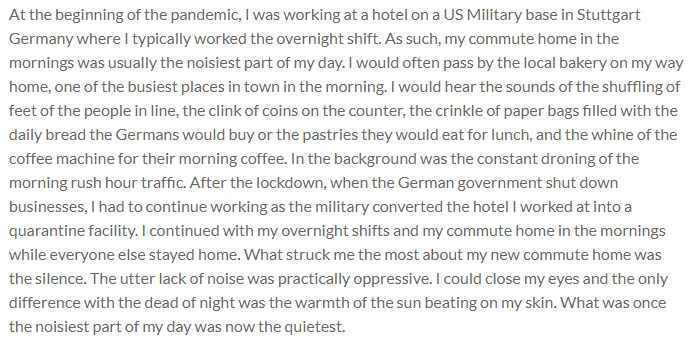
2020-05
At the beginning of the pandemic, I was working at a hotel on a US Military base in Stuttgart Germany where I typically worked the overnight shift. As such, my commute home in the mornings was usually the noisiest part of my day. I would often pass by the local bakery on my way home, one of the busiest places in town in the morning. I would hear the sounds of the shuffling of feet of the people in line, the clink of coins on the counter, the crinkle of paper bags filled with the daily bread the Germans would buy or the pastries they would eat for lunch, and the whine of the coffee machine for their morning coffee. In the background was the constant droning of the morning rush hour traffic. After the lockdown, when the German government shut down businesses, I had to continue working as the military converted the hotel I worked at into a quarantine facility. I continued with my overnight shifts and my commute home in the mornings while everyone else stayed home. What struck me the most about my new commute home was the silence. The utter lack of noise was practically oppressive. I could close my eyes and the only difference with the dead of night was the warmth of the sun beating on my skin. What was once the noisiest part of my day was now the quietest.
-
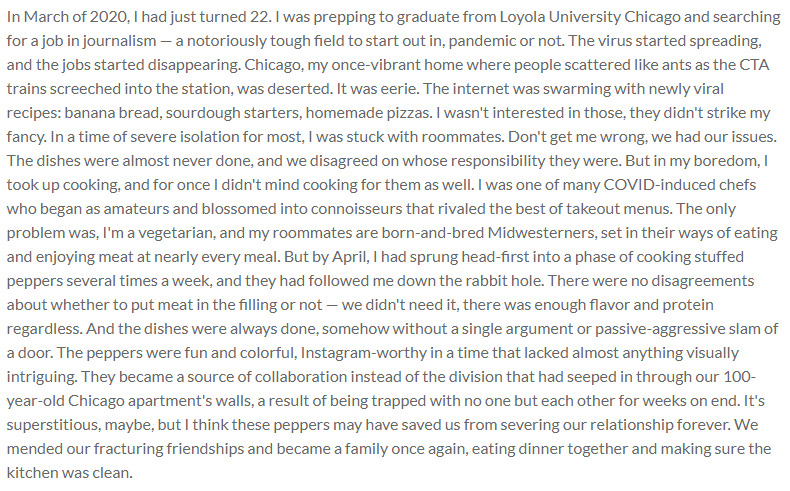
2020-04
In March of 2020, I had just turned 22. I was prepping to graduate from Loyola University Chicago and searching for a job in journalism — a notoriously tough field to start out in, pandemic or not. The virus started spreading, and the jobs started disappearing. Chicago, my once-vibrant home where people scattered like ants as the CTA trains screeched into the station, was deserted. It was eerie. The internet was swarming with newly viral recipes: banana bread, sourdough starters, homemade pizzas. I wasn't interested in those, they didn't strike my fancy. In a time of severe isolation for most, I was stuck with roommates. Don't get me wrong, we had our issues. The dishes were almost never done, and we disagreed on whose responsibility they were. But in my boredom, I took up cooking, and for once I didn't mind cooking for them as well. I was one of many COVID-induced chefs who began as amateurs and blossomed into connoisseurs that rivaled the best of takeout menus. The only problem was, I'm a vegetarian, and my roommates are born-and-bred Midwesterners, set in their ways of eating and enjoying meat at nearly every meal. But by April, I had sprung head-first into a phase of cooking stuffed peppers several times a week, and they had followed me down the rabbit hole. There were no disagreements about whether to put meat in the filling or not — we didn't need it, there was enough flavor and protein regardless. And the dishes were always done, somehow without a single argument or passive-aggressive slam of a door. The peppers were fun and colorful, Instagram-worthy in a time that lacked almost anything visually intriguing. They became a source of collaboration instead of the division that had seeped in through our 100-year-old Chicago apartment's walls, a result of being trapped with no one but each other for weeks on end. It's superstitious, maybe, but I think these peppers may have saved us from severing our relationship forever. We mended our fracturing friendships and became a family once again, eating dinner together and making sure the kitchen was clean.
-
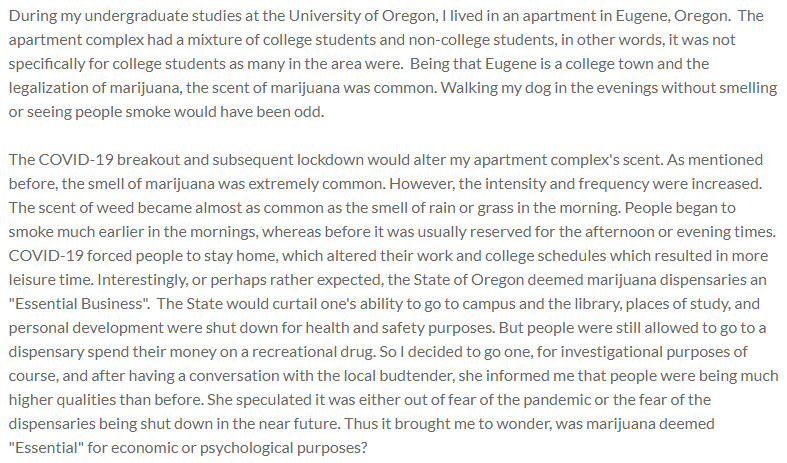
2020-02-01
During my undergraduate studies at the University of Oregon, I lived in an apartment in Eugene, Oregon. The apartment complex had a mixture of college students and non-college students, in other words, it was not specifically for college students as many in the area were. Being that Eugene is a college town and the legalization of marijuana, the scent of marijuana was common. Walking my dog in the evenings without smelling or seeing people smoke would have been odd.
The COVID-19 breakout and subsequent lockdown would alter my apartment complex's scent. As mentioned before, the smell of marijuana was extremely common. However, the intensity and frequency were increased. The scent of weed became almost as common as the smell of rain or grass in the morning. People began to smoke much earlier in the mornings, whereas before it was usually reserved for the afternoon or evening times. COVID-19 forced people to stay home, which altered their work and college schedules which resulted in more leisure time. Interestingly, or perhaps rather expected, the State of Oregon deemed marijuana dispensaries an "Essential Business". The State would curtail one's ability to go to campus and the library, places of study, and personal development were shut down for health and safety purposes. But people were still allowed to go to a dispensary spend their money on a recreational drug. So I decided to go one, for investigational purposes of course, and after having a conversation with the local budtender, she informed me that people were being much higher qualities than before. She speculated it was either out of fear of the pandemic or the fear of the dispensaries being shut down in the near future. Thus it brought me to wonder, was marijuana deemed "Essential" for economic or psychological purposes?
-
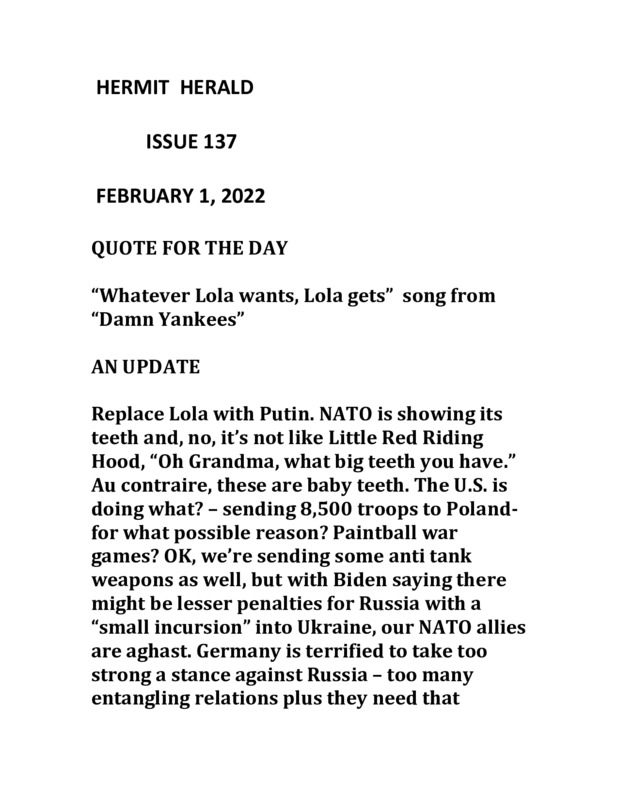
2022-02-01
Putin vs NATO
-
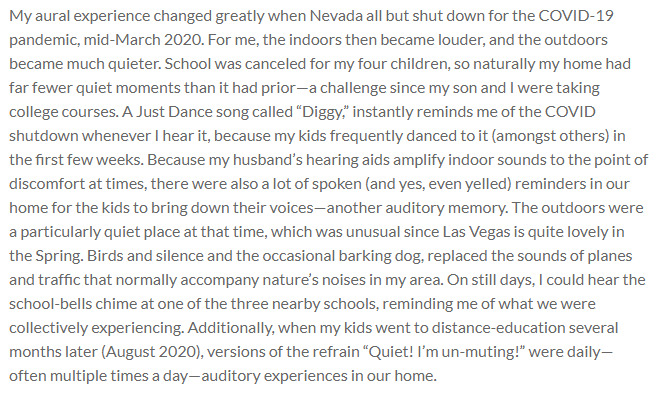
2020-03
My aural experience changed greatly when Nevada all but shut down for the COVID-19 pandemic, mid-March 2020. For me, the indoors then became louder, and the outdoors became much quieter. School was canceled for my four children, so naturally my home had far fewer quiet moments than it had prior—a challenge since my son and I were taking college courses. A Just Dance song called “Diggy,” instantly reminds me of the COVID shutdown whenever I hear it, because my kids frequently danced to it (amongst others) in the first few weeks. Because my husband’s hearing aids amplify indoor sounds to the point of discomfort at times, there were also a lot of spoken (and yes, even yelled) reminders in our home for the kids to bring down their voices—another auditory memory. The outdoors were a particularly quiet place at that time, which was unusual since Las Vegas is quite lovely in the Spring. Birds and silence and the occasional barking dog, replaced the sounds of planes and traffic that normally accompany nature’s noises in my area. On still days, I could hear the school-bells chime at one of the three nearby schools, reminding me of what we were collectively experiencing. Additionally, when my kids went to distance-education several months later (August 2020), versions of the refrain “Quiet! I’m un-muting!” were daily—often multiple times a day—auditory experiences in our home.
-
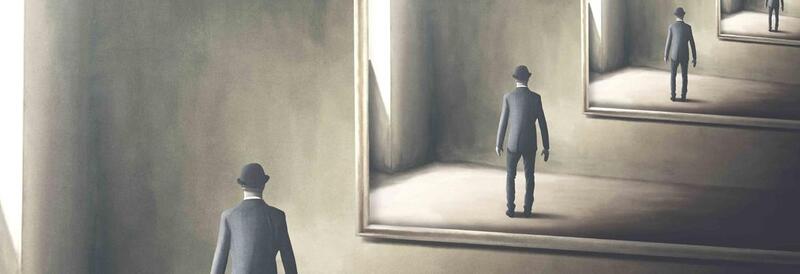
2020-03-13
I was in my senior year of High School when covid happened. That year that was going so well ended so badly. Once covid hit I lost all my friends and my girlfriend at the time. Everything changed and I worked at a grocery store. Ive never seen so many people at like such animals. while working at the store there would be about 4-5 fights a day and people were just fighting and emptying the shelves. It was scary to see that this is what was happening to our world and all I could really do was just sit there and watch and still hope that we would have enough product for me to still have a job. And that's not even the worst of it. I lost all of the fun things that happen senior year. I never got to go to prom, I never had a graduation ceremony, I lost everything. my girlfriend started lying and saying she couldn't see me because of coiled and I eventually found out she was cheating. I lost all my friends as well. The worst part of it is with everyone being quarantined, if you walked outside it looked like an abandoned waste land. little to no human life for months. You'd only see people at the stores and even then they aren't acting like the same people you once knew. But covid has done worse to me. Its ruined my football career and taken my dream away. It is what it is and I'm doing what I can to move on, but this pandemic changed me and everyone else. things are starting to go kinda back how they were but its not the same. Things will never be how they once were. Even when this virus fully passes and ends up just like the flu, the strain it has left on mankind as a whole will always be there. And even when historians in 50 years look back at this, No matter what there will be some part of them that has been effected by this. I honestly don't have much more to say because I feel like I've said what matters. All I have left to say is if you grew up/ are growing up during this I'm so sorry that this is what you also have to live through.
-
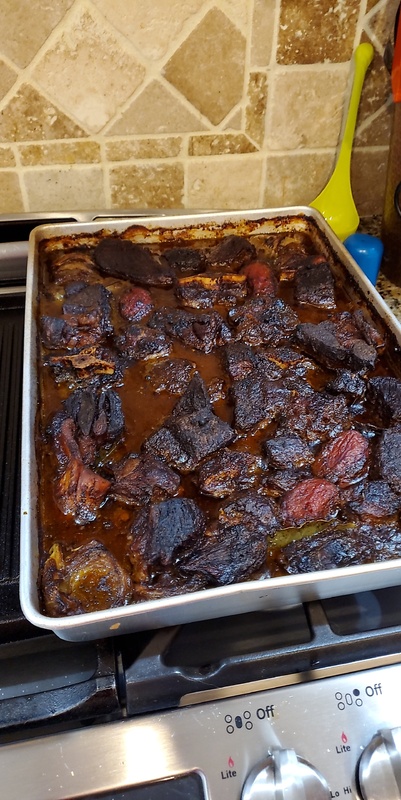
2021-02-04
During lockdown, like many others I came in need of something to pass the time, and also like many I turned to cooking. It was something I already enjoyed doing pre-Covid, but had much less time for it. But during lockdown, there was substantially more time to put into trying new things. Trying all these new recipes became a part of my everyday life, ranging from fresh pasta, to chicken parmesan, to birria tacos.
Almost all of these were new recipes to me, and the experiences and sensations that came with making them became a core part of what got me through lockdown. The smells of braising meat and stock simmering became something to look forward to each week. The new tastes and smells were something that brought the family together as we were all home, and cooking in our house is not a solitary affair. And each new dish only pushed me further down the rabbit hole of what most would consider way too much effort for a weeknight dinner.
The photos attached are final dishes of Chicken Noodle Soup, Chicken Parmesan, and Birria Tacos, along with an in progress photo of the birria taco meat after braising. For recipes, refer to Binging with Babish on YouTube.
-
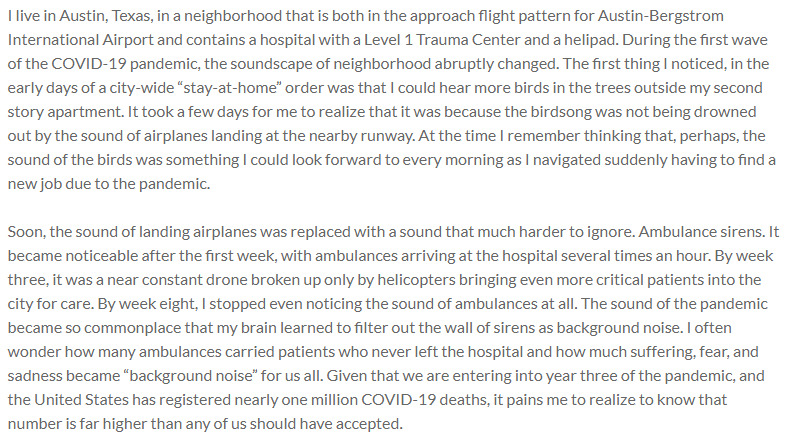
2020-04-15
I live in Austin, Texas, in a neighborhood that is both in the approach flight pattern for Austin-Bergstrom International Airport and contains a hospital with a Level 1 Trauma Center and a helipad. During the first wave of the COVID-19 pandemic, the soundscape of neighborhood abruptly changed. The first thing I noticed, in the early days of a city-wide “stay-at-home” order was that I could hear more birds in the trees outside my second story apartment. It took a few days for me to realize that it was because the birdsong was not being drowned out by the sound of airplanes landing at the nearby runway. At the time I remember thinking that, perhaps, the sound of the birds was something I could look forward to every morning as I navigated suddenly having to find a new job due to the pandemic.
Soon, the sound of landing airplanes was replaced with a sound that much harder to ignore. Ambulance sirens. It became noticeable after the first week, with ambulances arriving at the hospital several times an hour. By week three, it was a near constant drone broken up only by helicopters bringing even more critical patients into the city for care. By week eight, I stopped even noticing the sound of ambulances at all. The sound of the pandemic became so commonplace that my brain learned to filter out the wall of sirens as background noise. I often wonder how many ambulances carried patients who never left the hospital and how much suffering, fear, and sadness became “background noise” for us all. Given that we are entering into year three of the pandemic, and the United States has registered nearly one million COVID-19 deaths, it pains me to realize to know that number is far higher than any of us should have accepted.
-
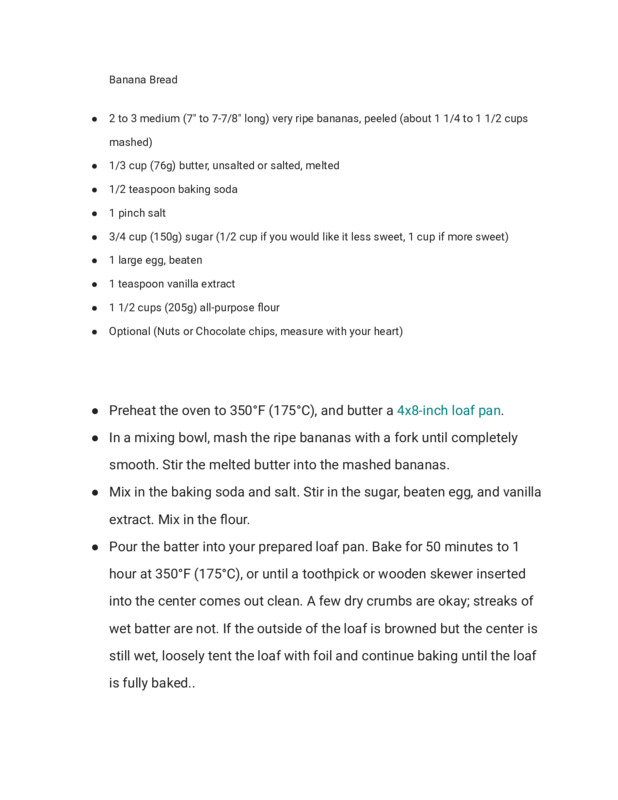
2020-03-31
Like a lot of people when the pandemic hit, there was a great deal of uncertainty. I didn't know how to function really, not teaching school, so like a lot of people, while thinking about my kids shortened year, I turned to baking. I tried Banoffee Pie and that was a huge faliure, but then , I stumbled on this Banana Bread recipe. I made upwards of 25 loafs in the months that follow. Every time I taste that sweet banana goodness, I think of how much I both enjoyed having that time (I mean, daily naps, what is there not to love) and how much uncertainty there was.
-
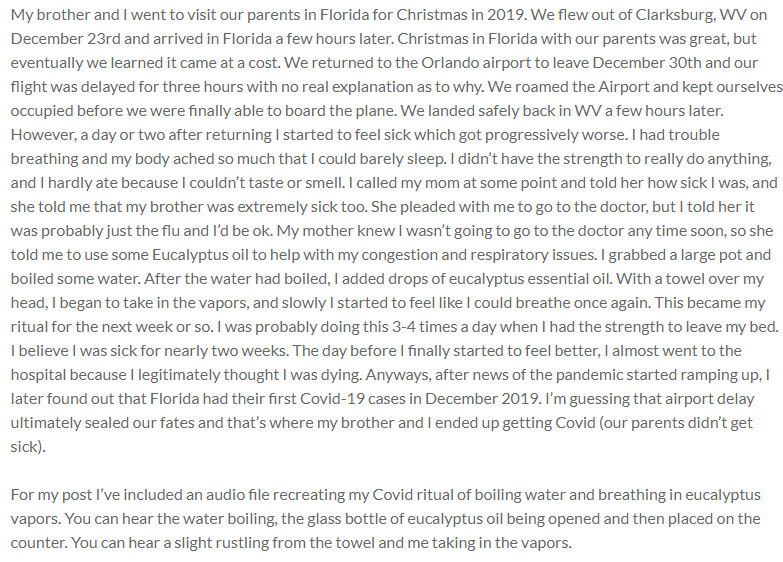
2020-01-04
My brother and I went to visit our parents in Florida for Christmas in 2019. We flew out of Clarksburg, WV on December 23rd and arrived in Florida a few hours later. Christmas in Florida with our parents was great, but eventually we learned it came at a cost. We returned to the Orlando airport to leave December 30th and our flight was delayed for three hours with no real explanation as to why. We roamed the Airport and kept ourselves occupied before we were finally able to board the plane. We landed safely back in WV a few hours later. However, a day or two after returning I started to feel sick which got progressively worse. I had trouble breathing and my body ached so much that I could barely sleep. I didn’t have the strength to really do anything, and I hardly ate because I couldn’t taste or smell. I called my mom at some point and told her how sick I was, and she told me that my brother was extremely sick too. She pleaded with me to go to the doctor, but I told her it was probably just the flu and I’d be ok. My mother knew I wasn’t going to go to the doctor any time soon, so she told me to use some Eucalyptus oil to help with my congestion and respiratory issues. I grabbed a large pot and boiled some water. After the water had boiled, I added drops of eucalyptus essential oil. With a towel over my head, I began to take in the vapors, and slowly I started to feel like I could breathe once again. This became my ritual for the next week or so. I was probably doing this 3-4 times a day when I had the strength to leave my bed. I believe I was sick for nearly two weeks. The day before I finally started to feel better, I almost went to the hospital because I legitimately thought I was dying. Anyways, after news of the pandemic started ramping up, I later found out that Florida had their first Covid-19 cases in December 2019. I’m guessing that airport delay ultimately sealed our fates and that’s where my brother and I ended up getting Covid (our parents didn’t get sick).
For my post I’ve included an audio file recreating my Covid ritual of boiling water and breathing in eucalyptus vapors. You can hear the water boiling, the glass bottle of eucalyptus oil being opened and then placed on the counter. You can hear a slight rustling from the towel and me taking in the vapors.
-

2020-04-02
I live in Pensacola, about 10 mins from the beach. I have spent many a day at the beach with my family. The sounds and smells of the beach that are familiar to me are children playing, seagulls flying above, someone playing the radio, waves crashing, people talking and laughing, and the smell of nearby restaurants and suntan oil. It was the first week of April 2020, and I had terrible cabin fever from being quarantined, so I decided to take a drive up the coast. After about an hour of driving, I turned around to head home. That is when I really looked at the beach; I had never seen it so empty, void of all humans. I pulled over and got out, and the sounds were different. There were no laughing children, no songs on the radio, just the thunderous crashing of the waves. There was no suntan oil smell in the air, just the smell and taste of saltwater. It was surreal to experience the beach so barren but more serene than it had ever felt.
-
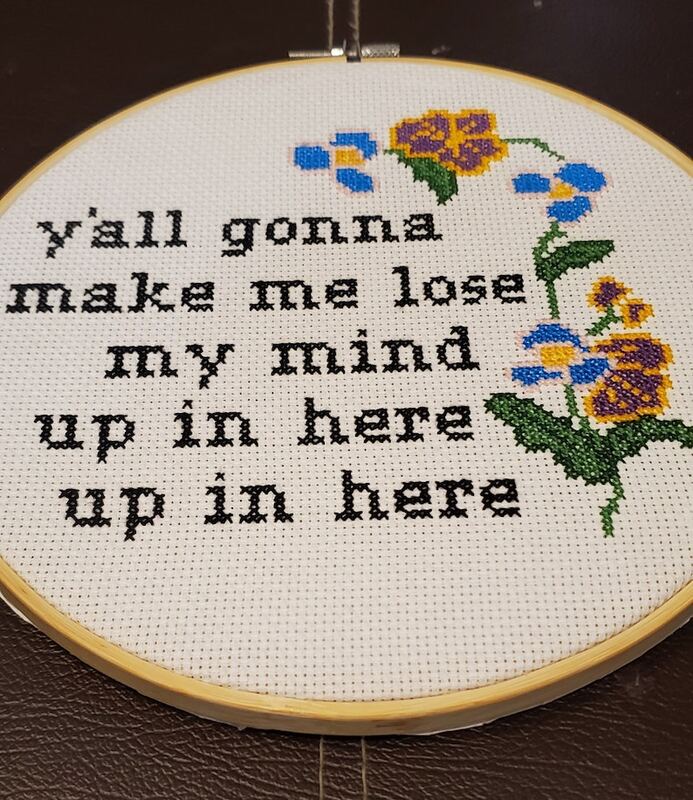
2020-04
On March 25, 2020 Governor Polis ordered a state-wide stay at home order for Colorado. By this time, my family was already limiting our time outside the house to work or errands. My daughter, Kat, has severe asthma, so we knew we had to limit our exposure as much as possible. Previous midnight trips to the emergency room were full of her wheezing out tiny gulps of air, the beeps and blips of the machine keeping track of her heart rate, and the guttural growl of the blood pressure cuff as it tightened around her arm. These were the sounds I first heard when the stories of a new, novel virus came out, the sounds that stayed most in my mind the more I heard about rising cases.
The first week in April the movie theater where Kat worked closed down. My son, Gabe, left his job a few days later. I cried that day, not from sadness but relief. And not a quick cry, but the loud sobs that make your shoulders shake. The next day was a major shift for us. Instead of leaving the house to work, they came to work for me instead. My cross stitch shop was already a full-time business. Now that many people were staying home, the US saw a return to basics (baking and crafting), and my shop exploded with more orders than I could fathom. There is something that satisfies most of us in having that tactile experience, whether it be the feel of flour (soft and powdery) as you knead your bread or the stabstab of your needle piercing your fabric.
Though there was the stress of craft stores closing and supply chain delays, long work hours, and boxes of hoops stacked in the living room, there was mostly the sound of the Beatles and loads of laughter. Kat has a high-pitched giggle (she snorts when she really gets going), Gabe a deep laugh rich in tone. Someone came up with the adage that laughter is the best medicine. I couldn’t say who created the saying, but the sound of laughter in my house during the April 2020 lockdown in Colorado kept myself and my children in positive spirits. In fact, our lives have been forever changed by that April. They are back to their old jobs, but we still keep mostly at home and with each other. We have family game nights and cook together and keep the laughter going strong.
-
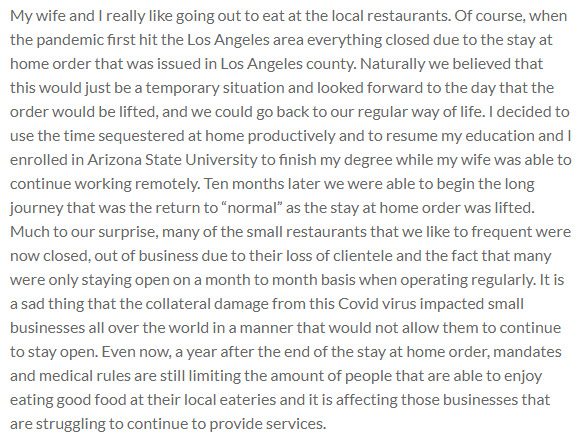
2022-02-02
My wife and I really like going out to eat at the local restaurants. Of course, when the pandemic first hit the Los Angeles area everything closed due to the stay at home order that was issued in Los Angeles county. Naturally we believed that this would just be a temporary situation and looked forward to the day that the order would be lifted, and we could go back to our regular way of life. I decided to use the time sequestered at home productively and to resume my education and I enrolled in Arizona State University to finish my degree while my wife was able to continue working remotely. Ten months later we were able to begin the long journey that was the return to “normal” as the stay at home order was lifted. Much to our surprise, many of the small restaurants that we like to frequent were now closed, out of business due to their loss of clientele and the fact that many were only staying open on a month to month basis when operating regularly. It is a sad thing that the collateral damage from this Covid virus impacted small businesses all over the world in a manner that would not allow them to continue to stay open. Even now, a year after the end of the stay at home order, mandates and medical rules are still limiting the amount of people that are able to enjoy eating good food at their local eateries and it is affecting those businesses that are struggling to continue to provide services.
I recorded the interior of one of our favorite restaurants one morning as my wife and I went out to breakfast, but there were still plenty of empty tables.
-
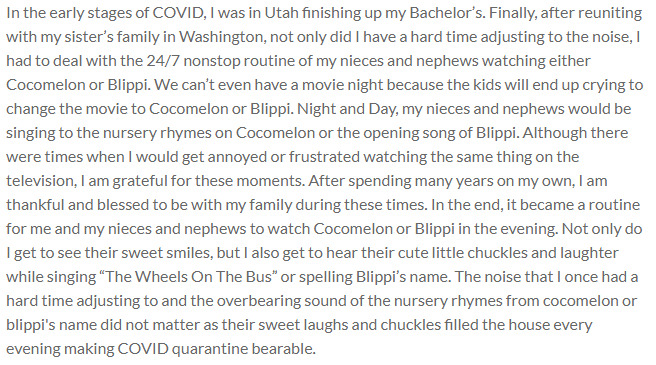
2021-04-08
In the early stages of COVID, I was in Utah finishing up my Bachelor’s. Finally, after reuniting with my sister’s family in Washington, not only did I have a hard time adjusting to the noise, I had to deal with the 24/7 nonstop routine of my nieces and nephews watching either Cocomelon or Blippi. We can’t even have a movie night because the kids will end up crying to change the movie to Cocomelon or Blippi. Night and Day, my nieces and nephews would be singing to the nursery rhymes on Cocomelon or the opening song of Blippi. Although there were times when I would get annoyed or frustrated watching the same thing on the television, I am grateful for these moments. After spending many years on my own, I am thankful and blessed to be with my family during these times. In the end, it became a routine for me and my nieces and nephews to watch Cocomelon or Blippi in the evening. Not only do I get to see their sweet smiles, but I also get to hear their cute little chuckles and laughter while singing “The Wheels On The Bus” or spelling Blippi’s name. The noise that I once had a hard time adjusting to and the overbearing sound of the nursery rhymes from cocomelon or blippi's name did not matter as their sweet laughs and chuckles filled the house every evening making COVID quarantine bearable.
 2022-02-06
2022-02-06 2020-04-24
2020-04-24 2022-02-07T10:00:00
2022-02-07T10:00:00 2021
2021 2021-02-09
2021-02-09 2020-05-30
2020-05-30 2020-03
2020-03 2020-03
2020-03 2021-10-13
2021-10-13 2022-02-06
2022-02-06 2022-02-06
2022-02-06 2020-03-20
2020-03-20 2022-02-06
2022-02-06 2022-02-06
2022-02-06 2020-03
2020-03 2020-03-16
2020-03-16 2020-03-24
2020-03-24 2022-02-06
2022-02-06 2020-03-17
2020-03-17 2020-03-28
2020-03-28 2021-09-13
2021-09-13 2020-06-01
2020-06-01 2020-03-01
2020-03-01 2020-05-07
2020-05-07 2020-08-10
2020-08-10 2022-02-05
2022-02-05 2020-03-06
2020-03-06 2020-03-07
2020-03-07 2020-06-25
2020-06-25 2021-02-16
2021-02-16 2020
2020 2020-03-12
2020-03-12 2020-09
2020-09 2020-05
2020-05 2020-04
2020-04 2020-02-01
2020-02-01 2022-02-01
2022-02-01 2020-03
2020-03 2020-03-13
2020-03-13 2021-02-04
2021-02-04 2020-04-15
2020-04-15 2020-03-31
2020-03-31 2020-01-04
2020-01-04 2020-04-02
2020-04-02 2020-04
2020-04 2022-02-02
2022-02-02 2021-04-08
2021-04-08